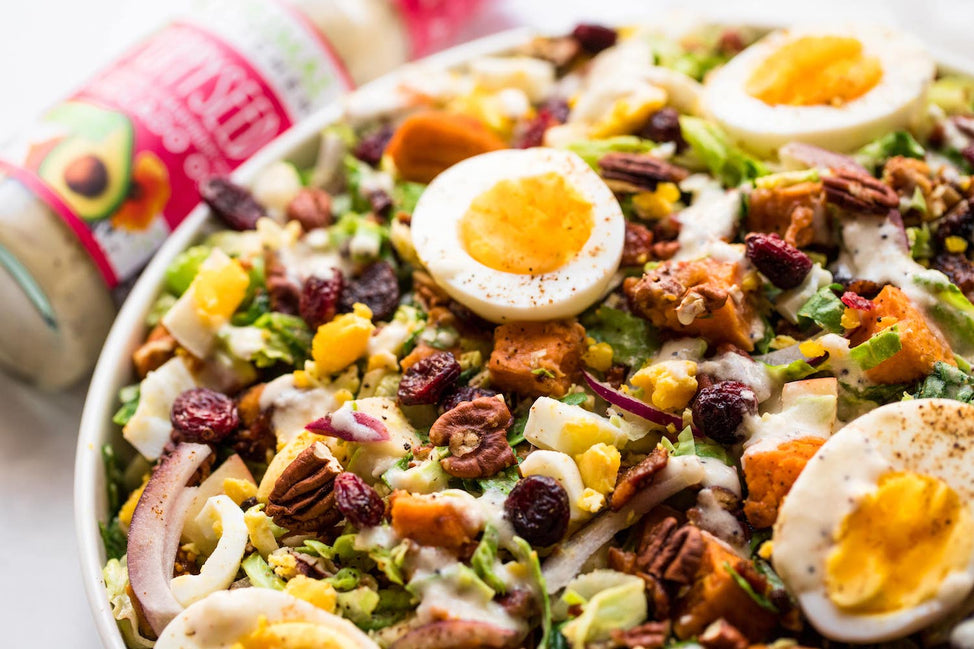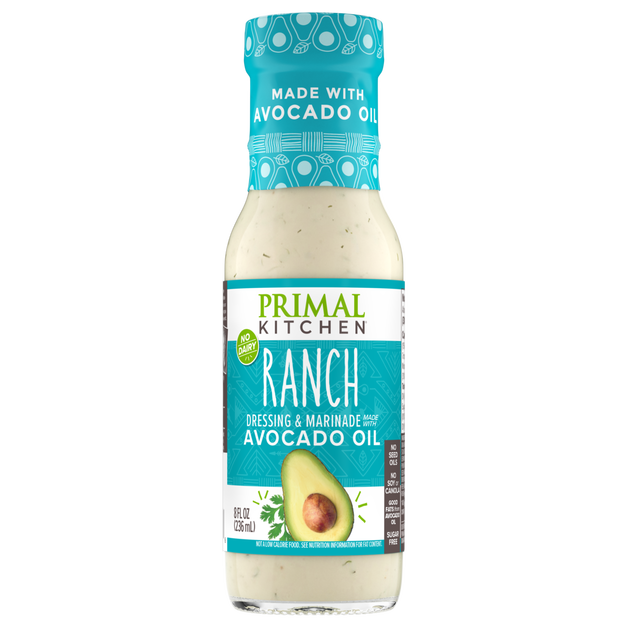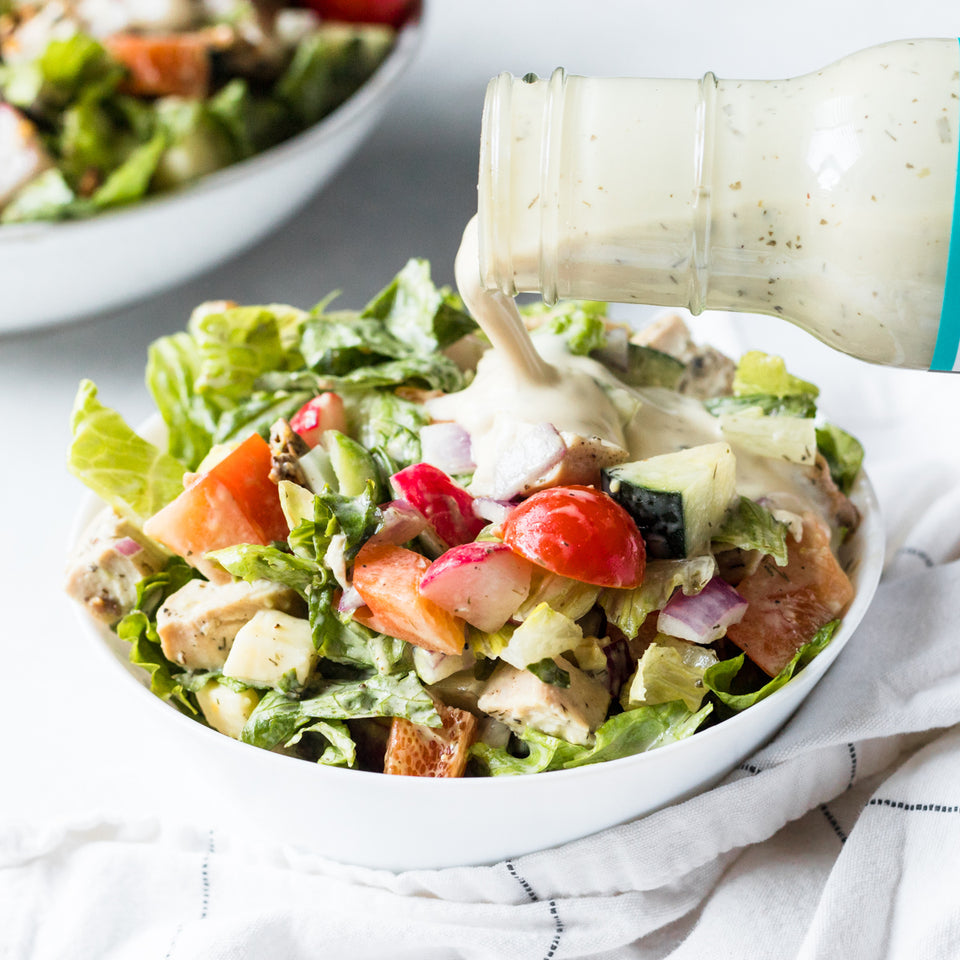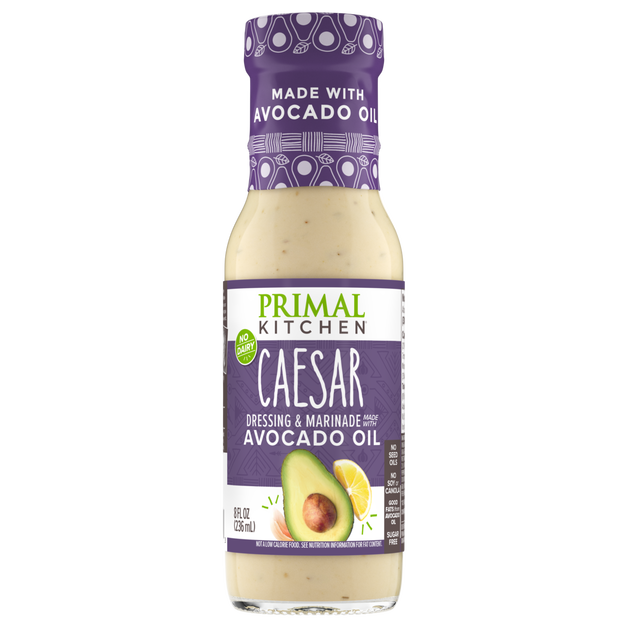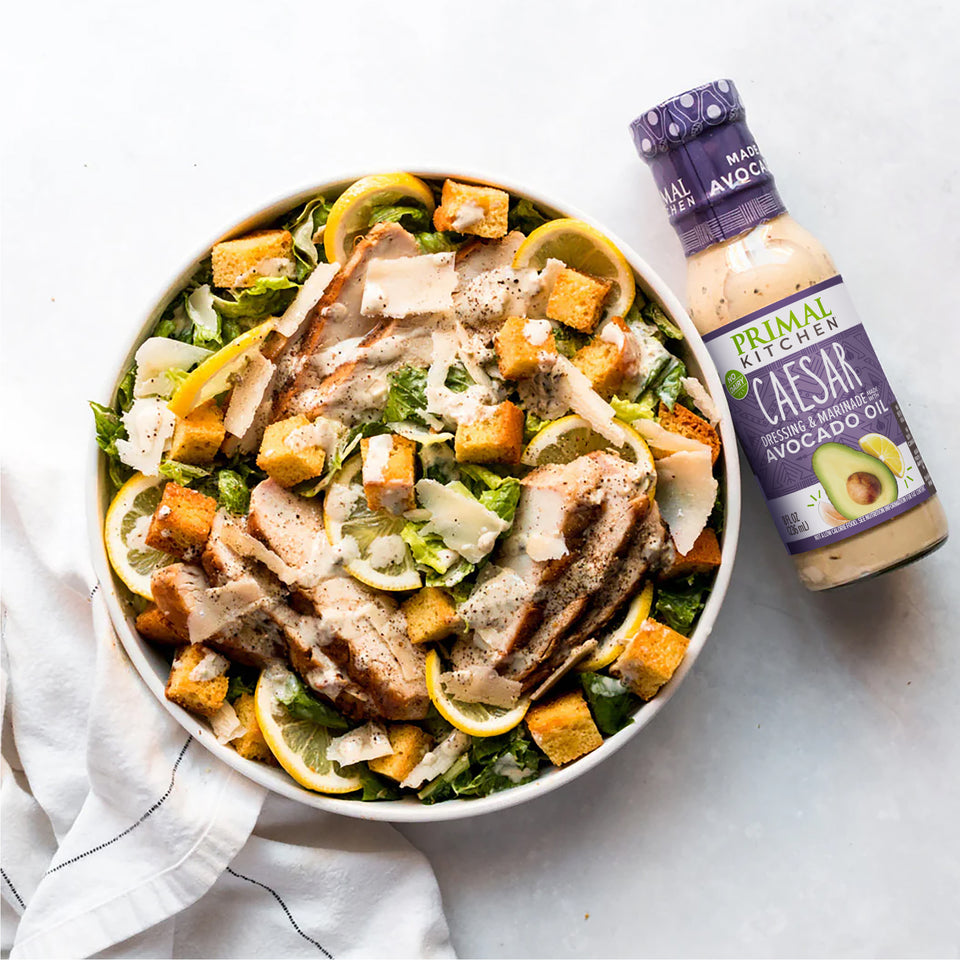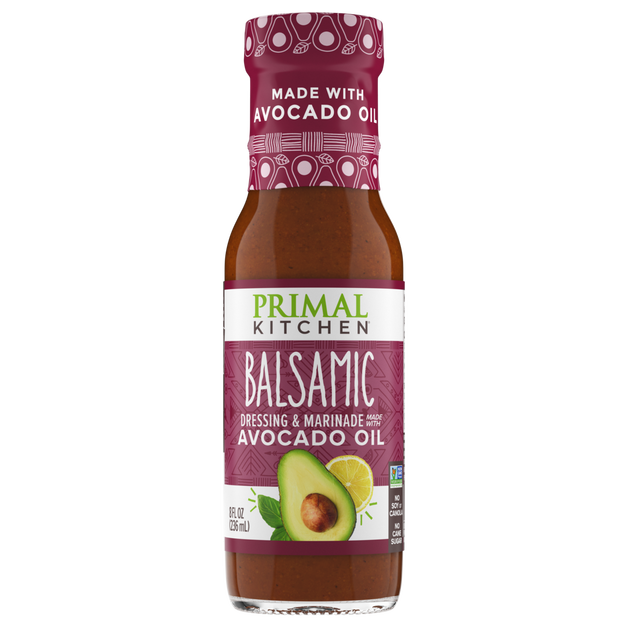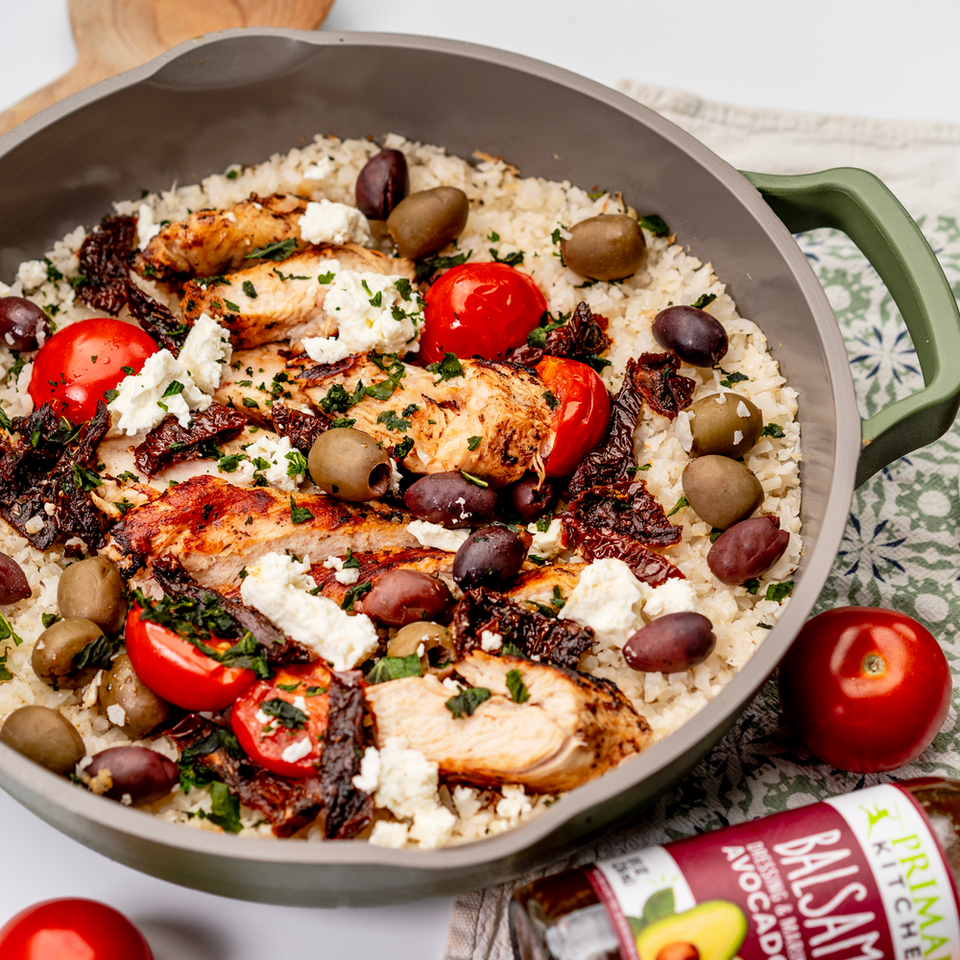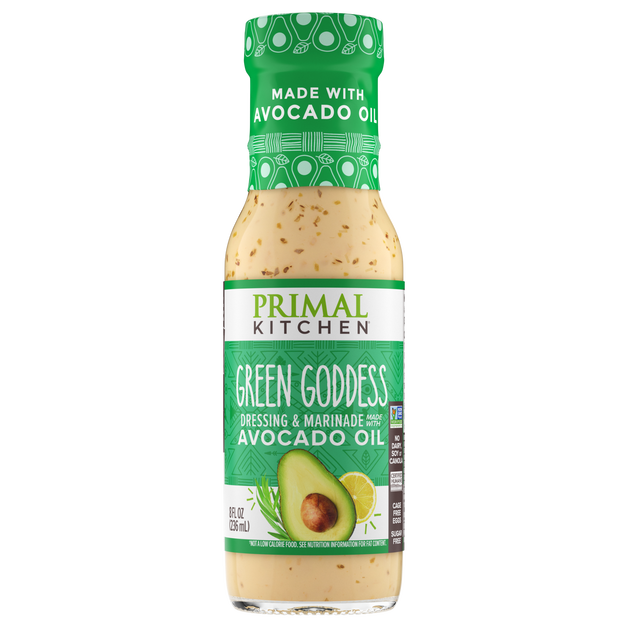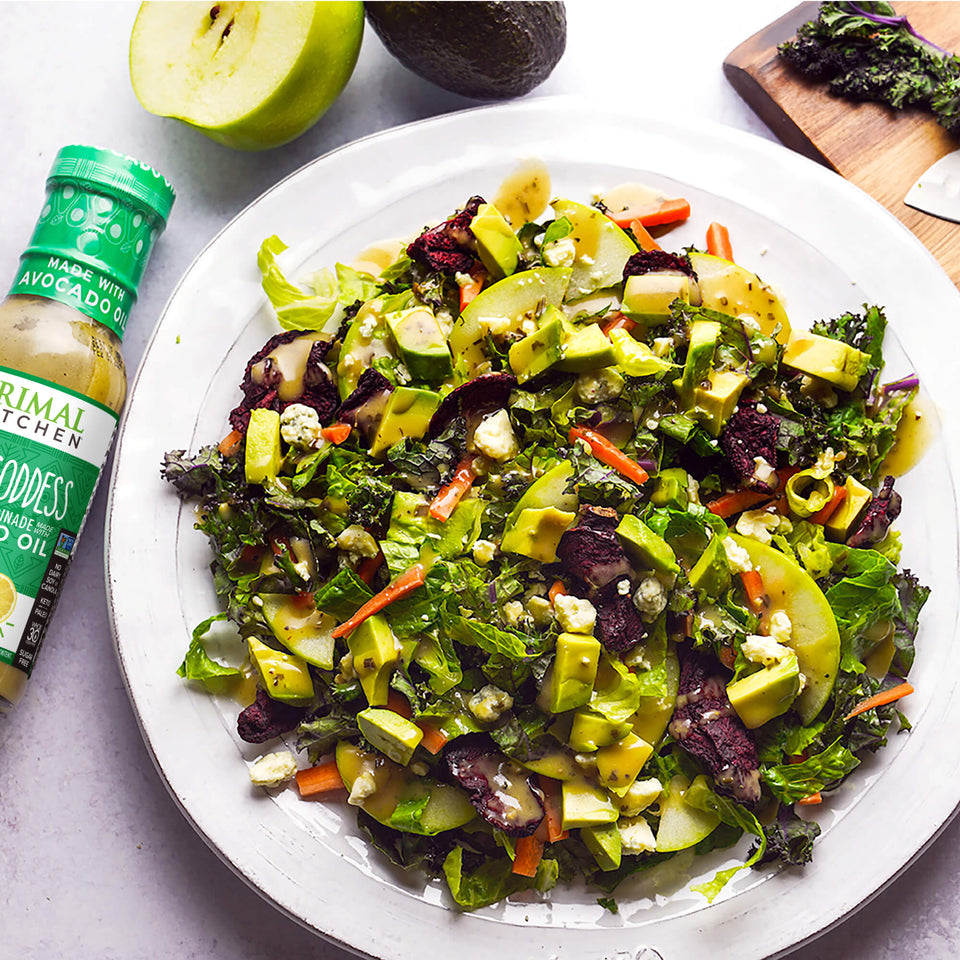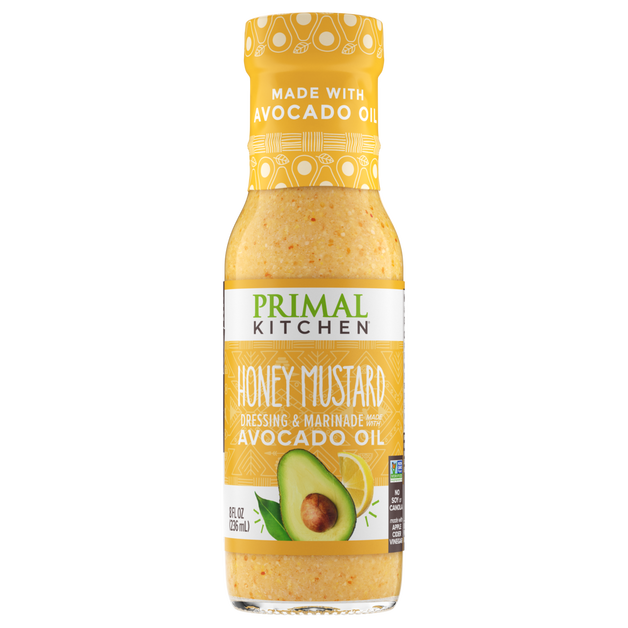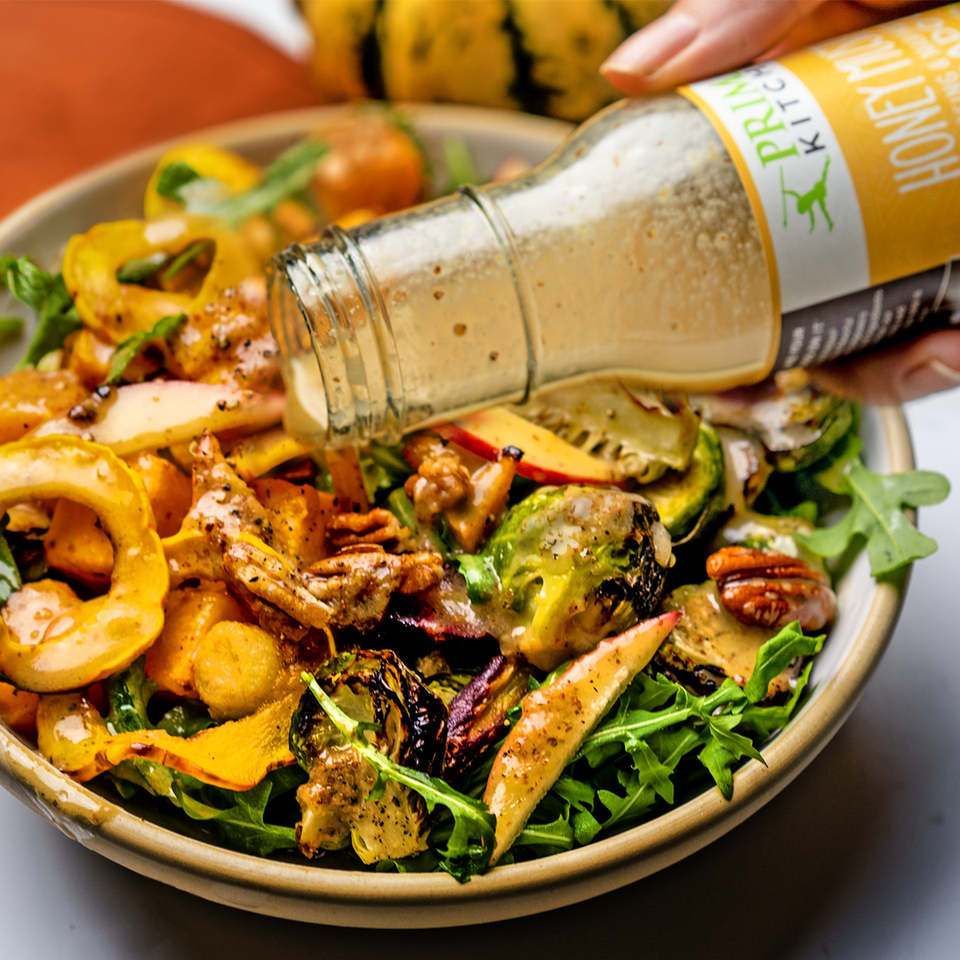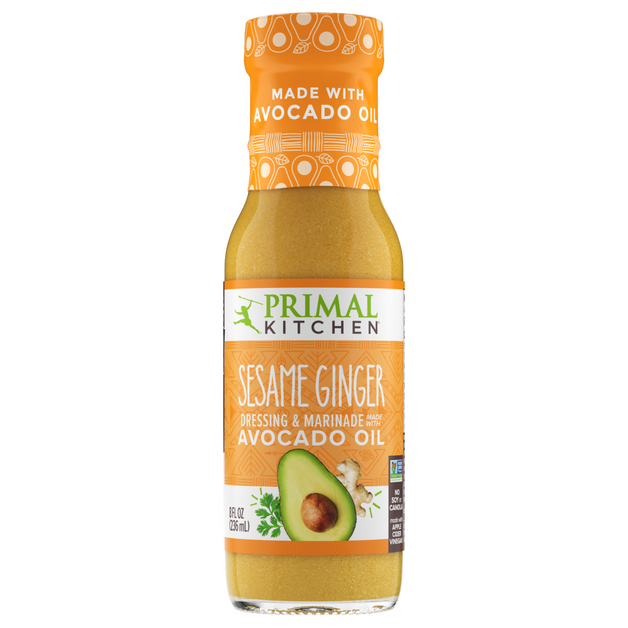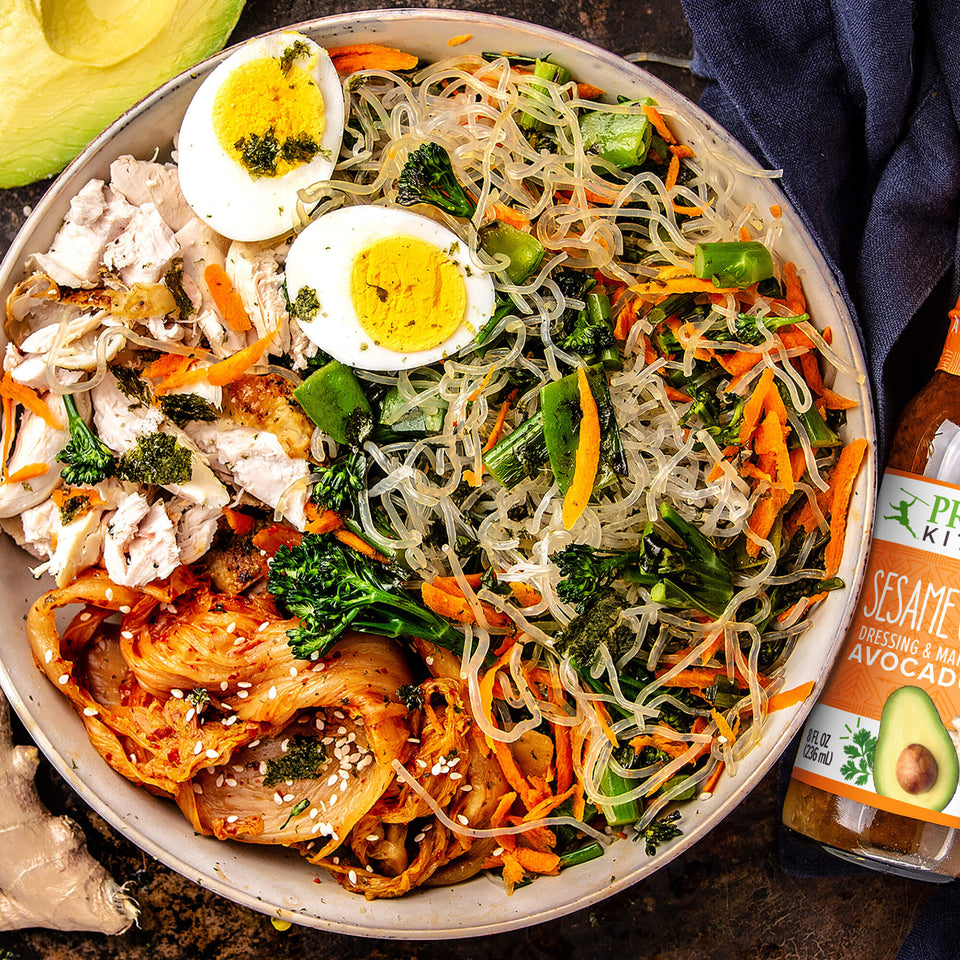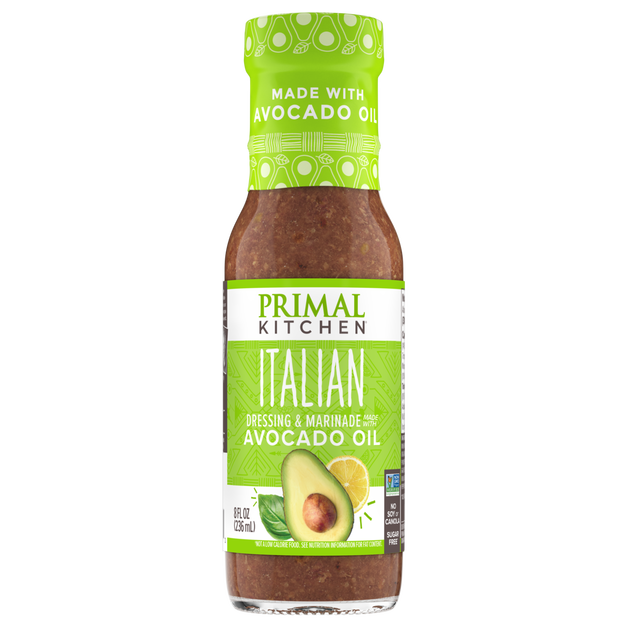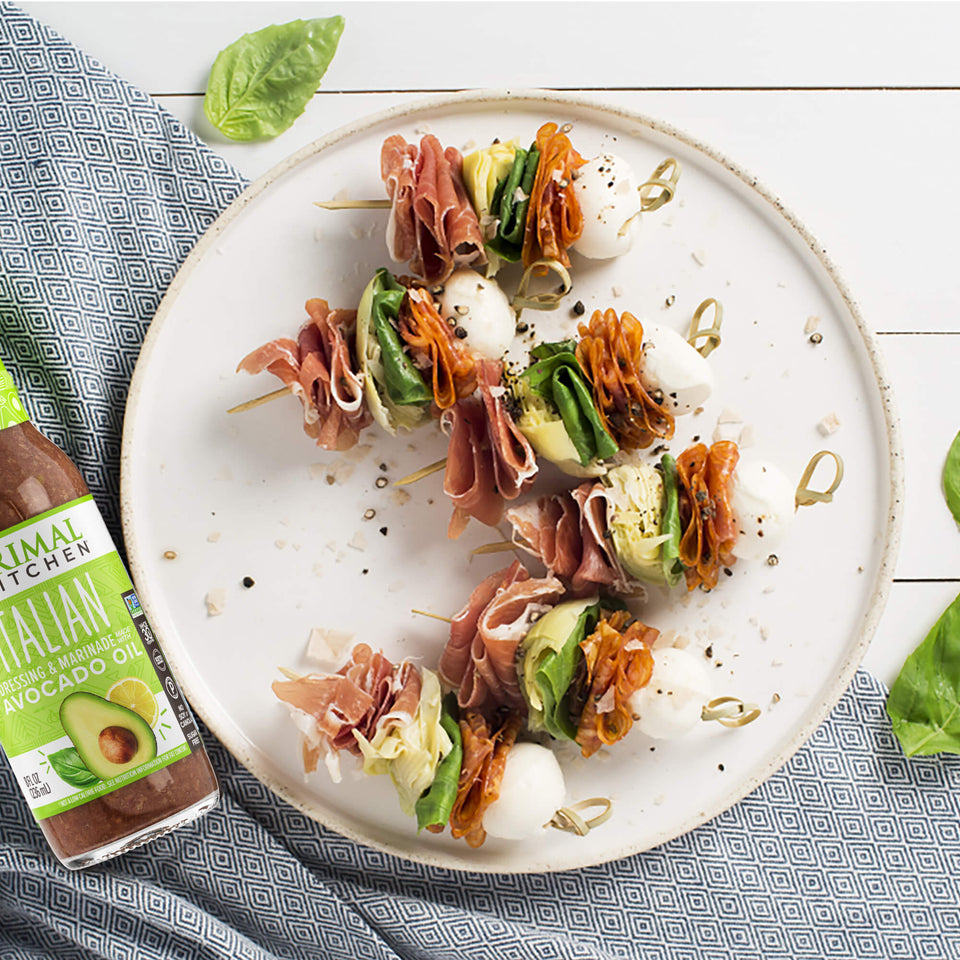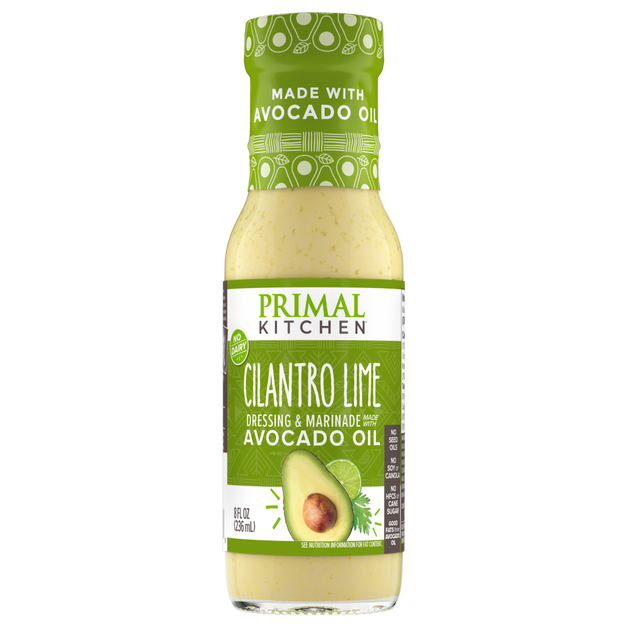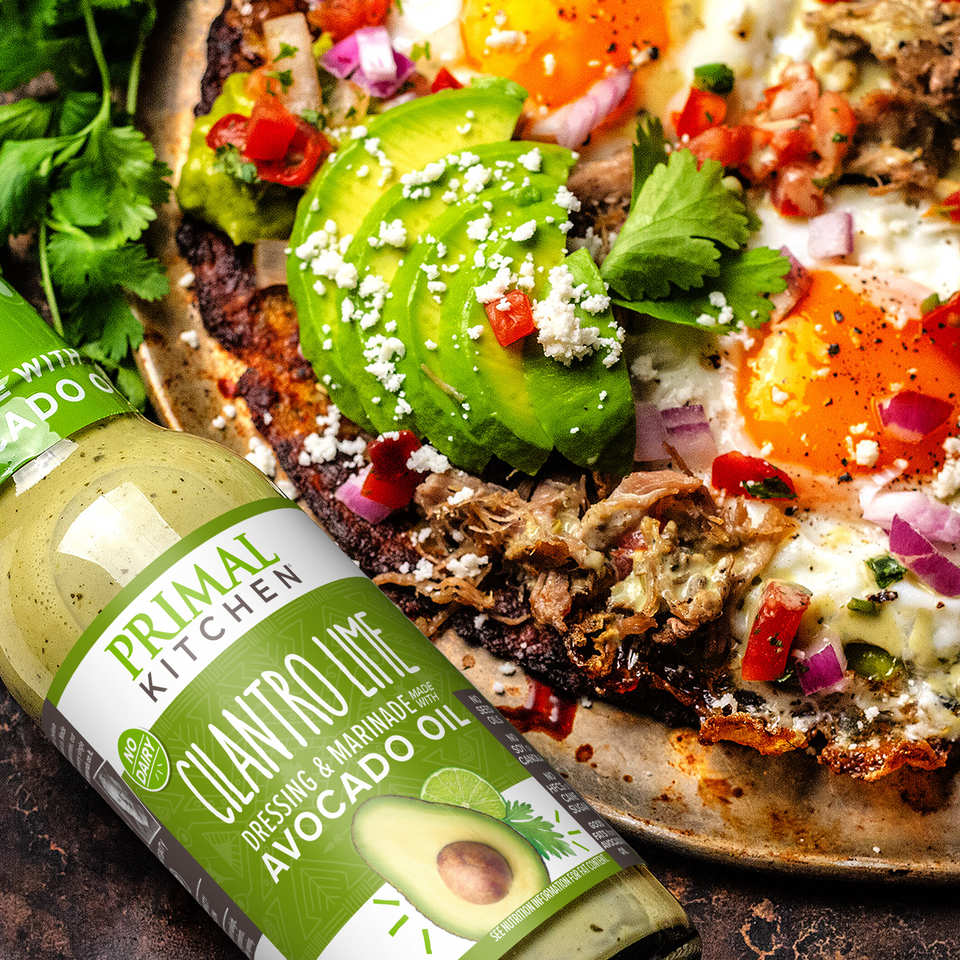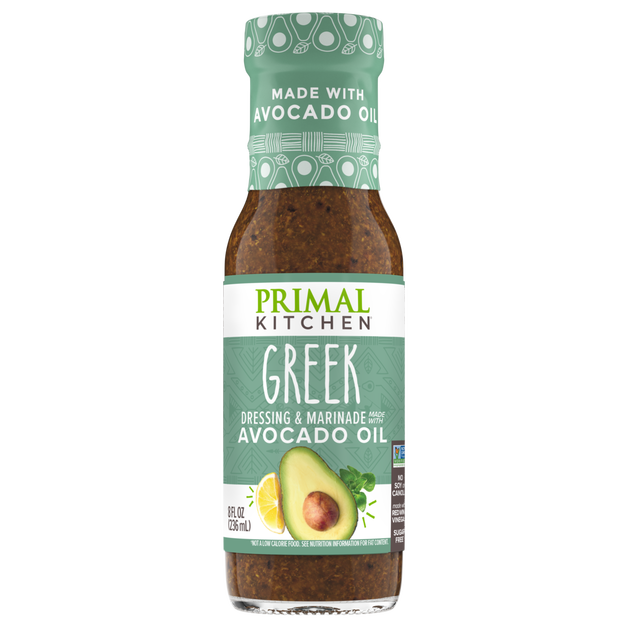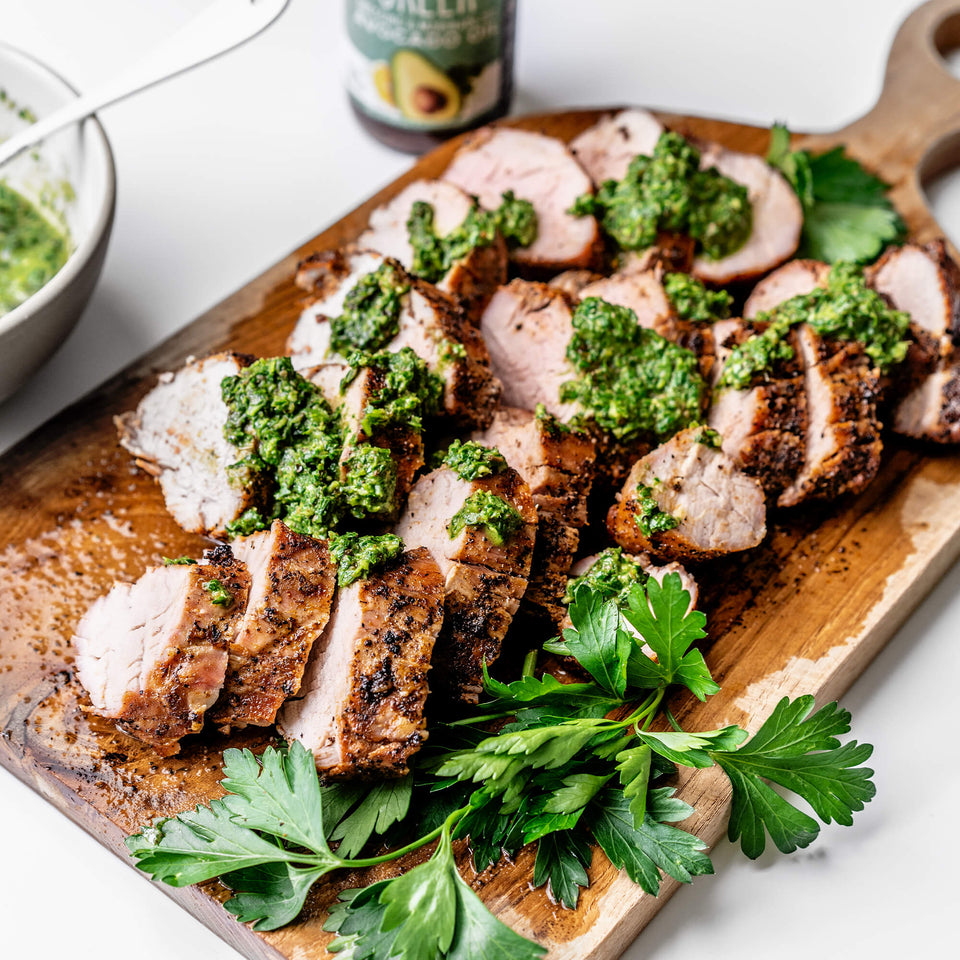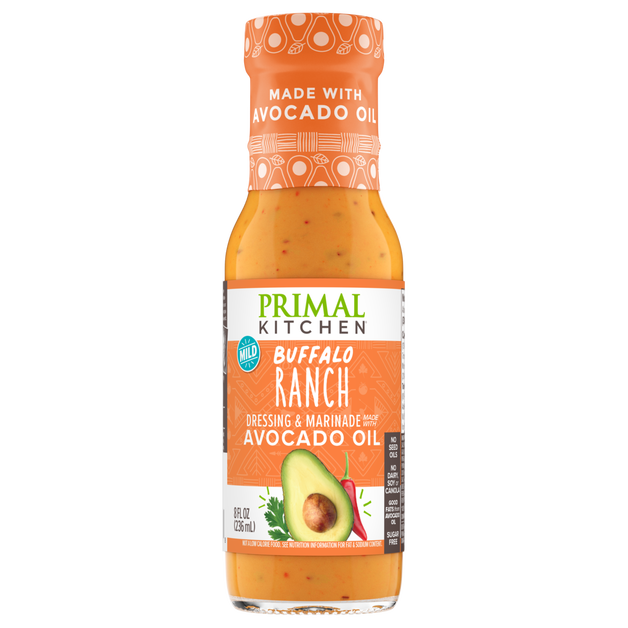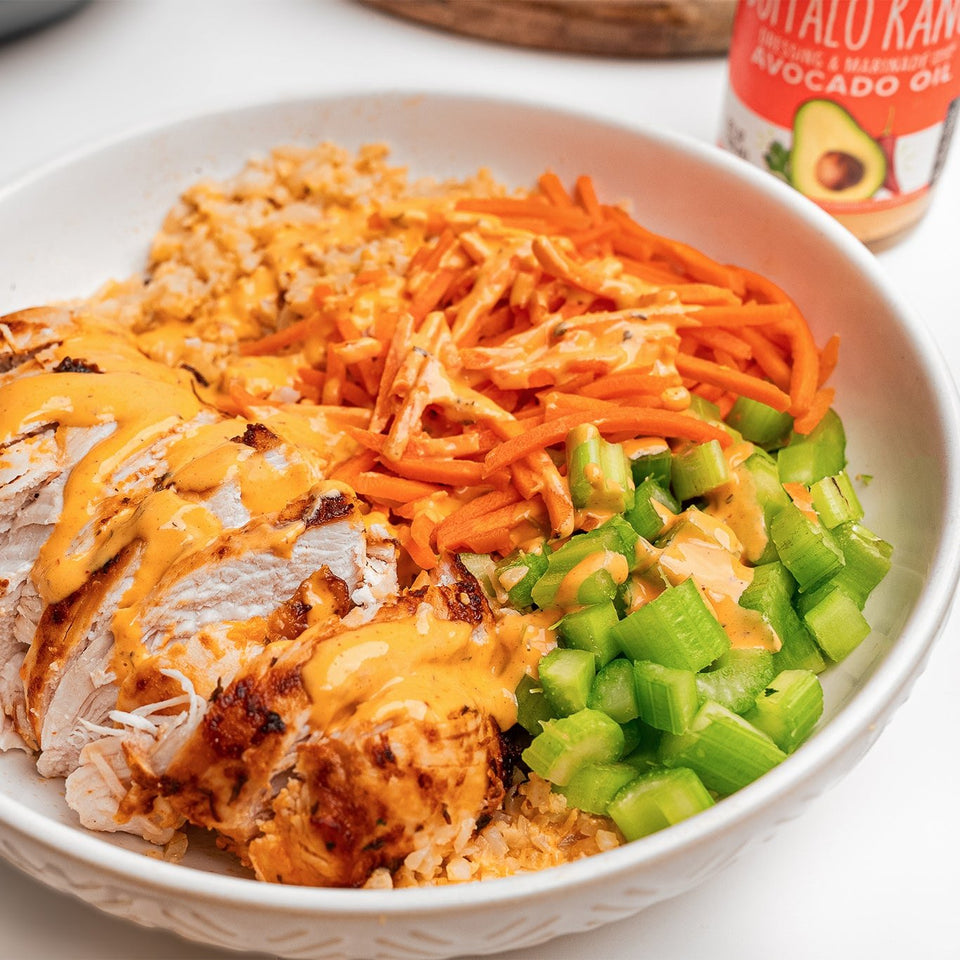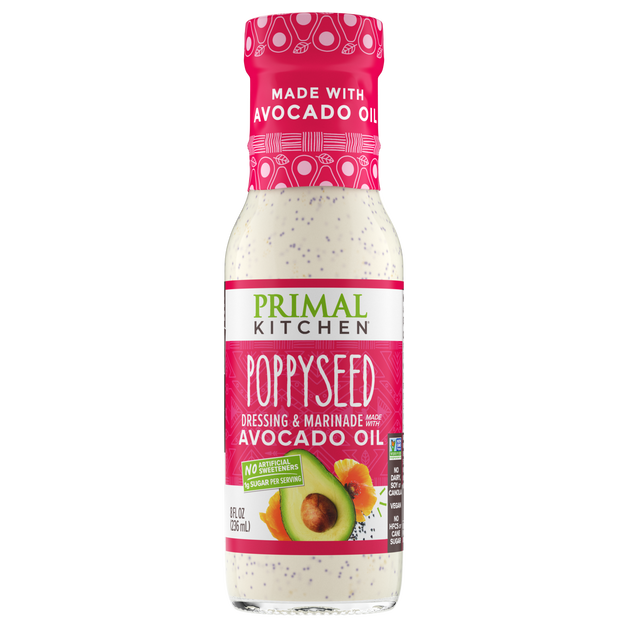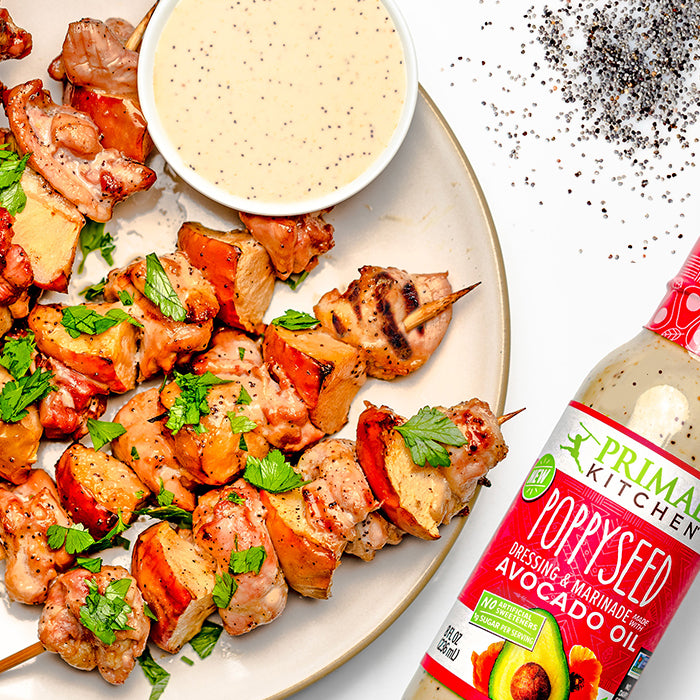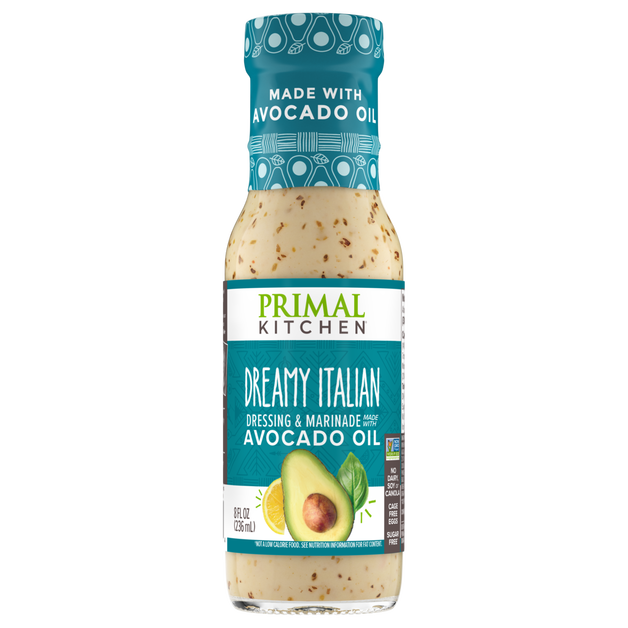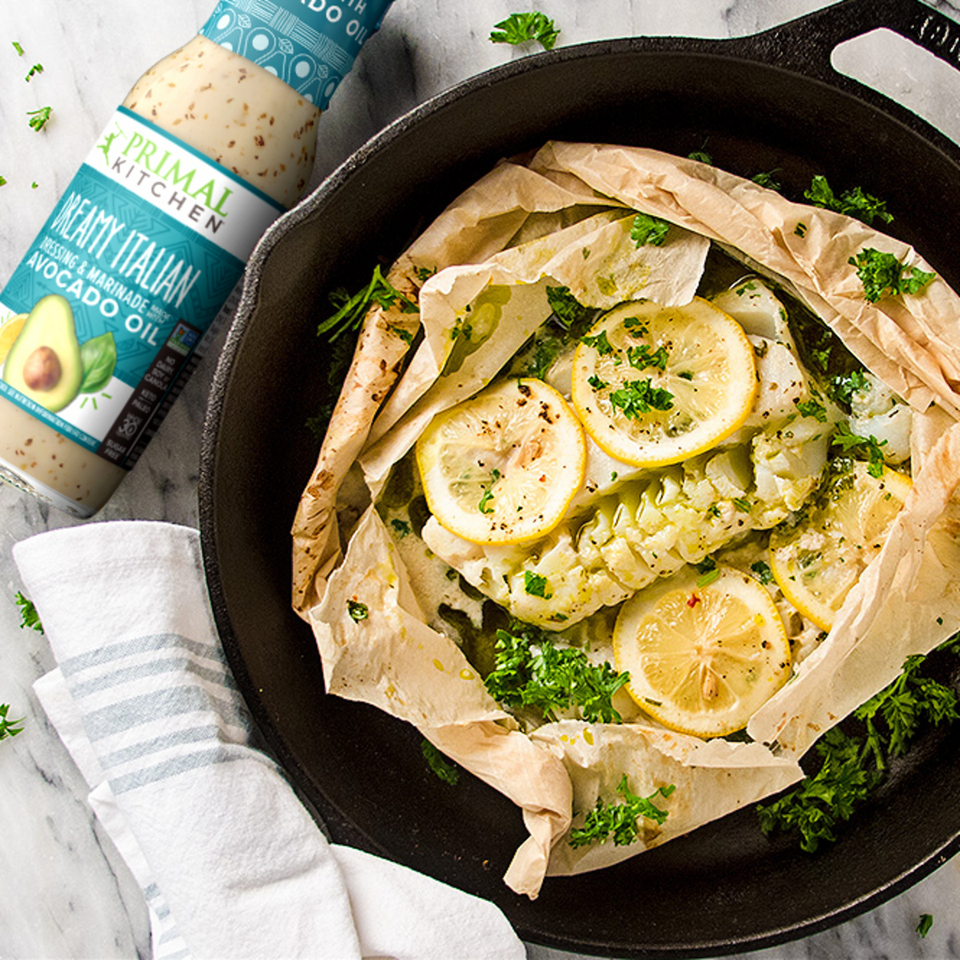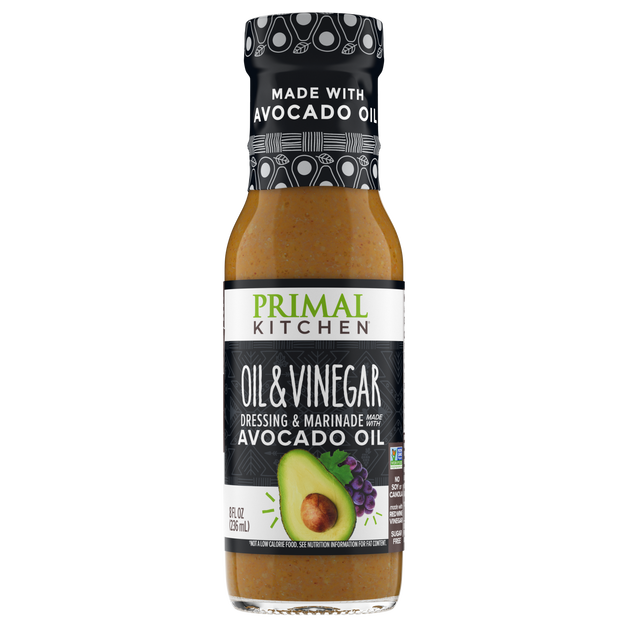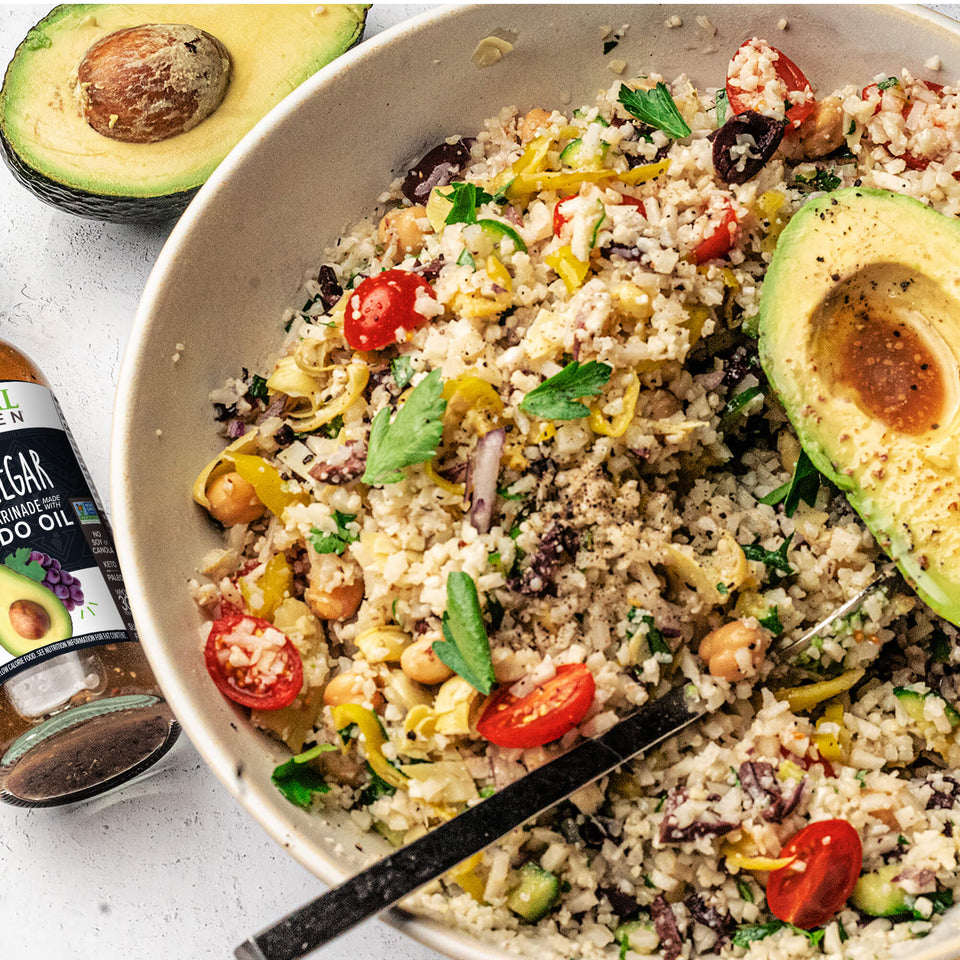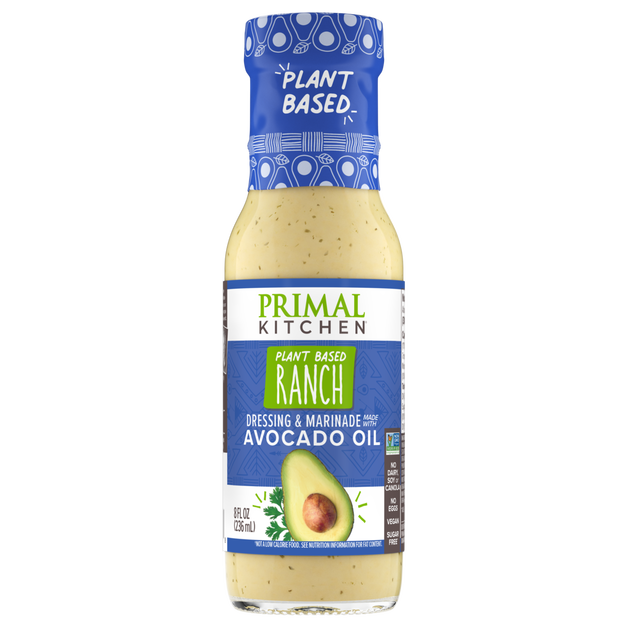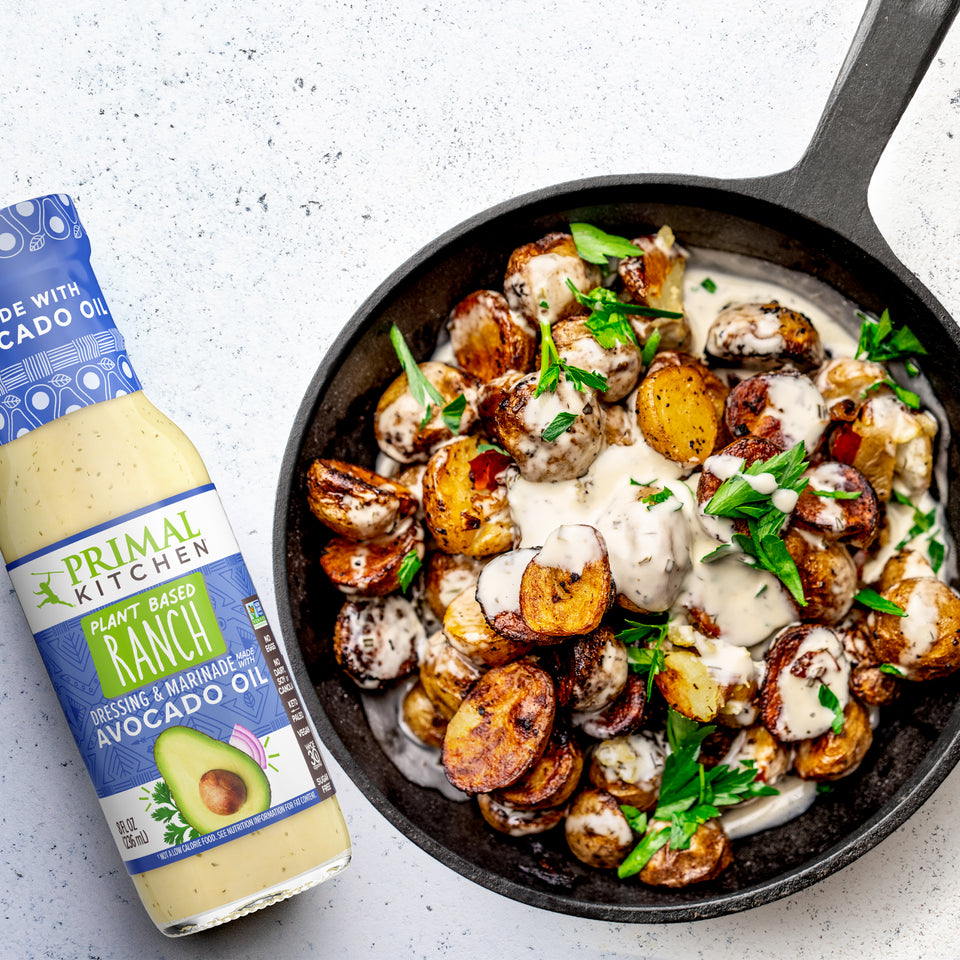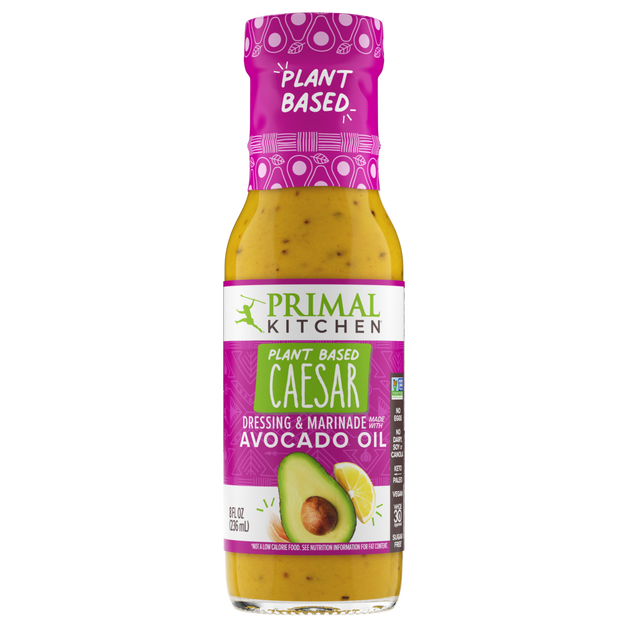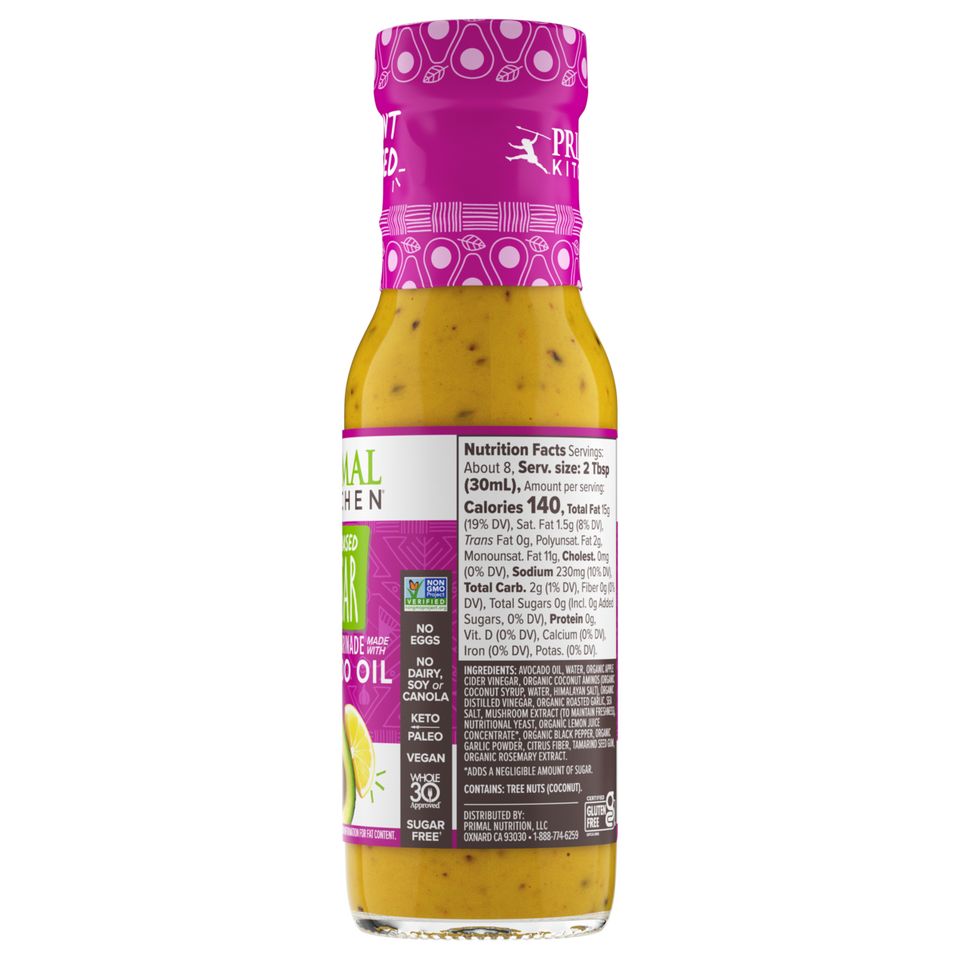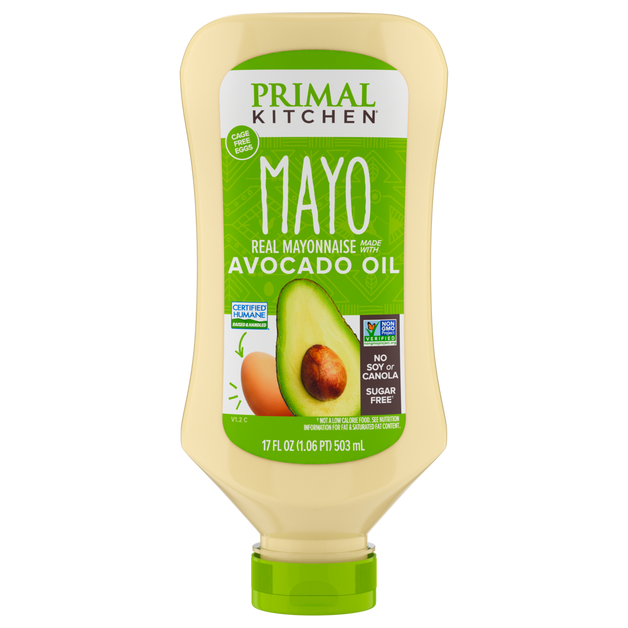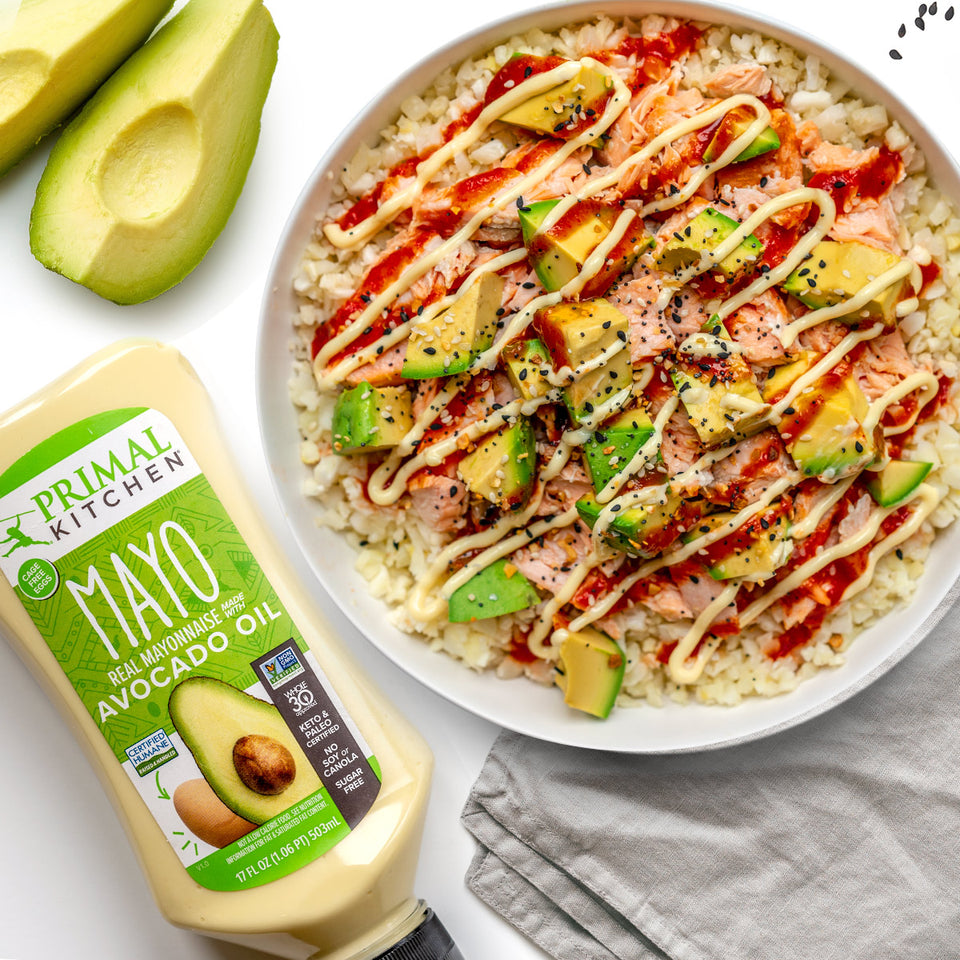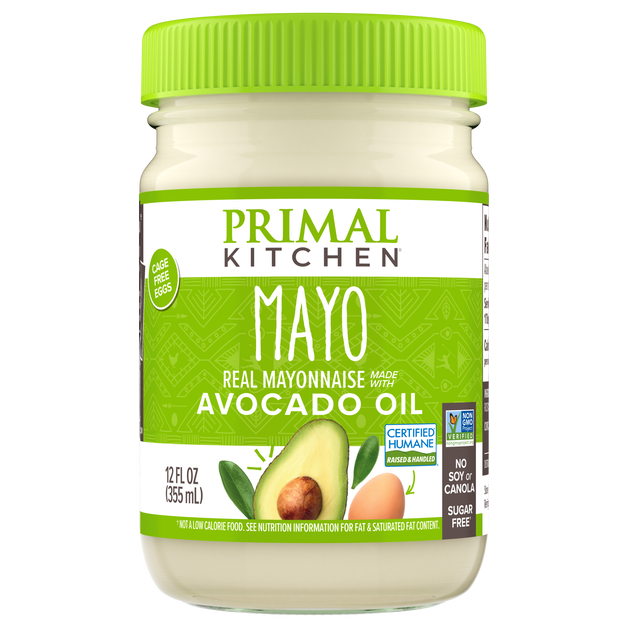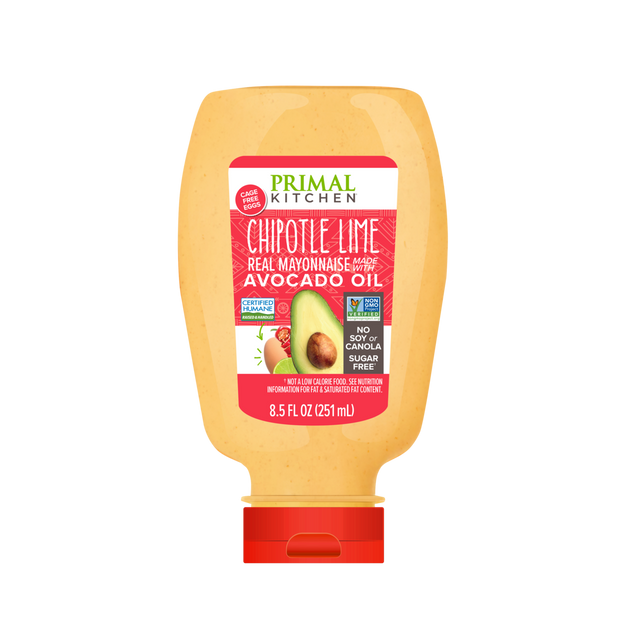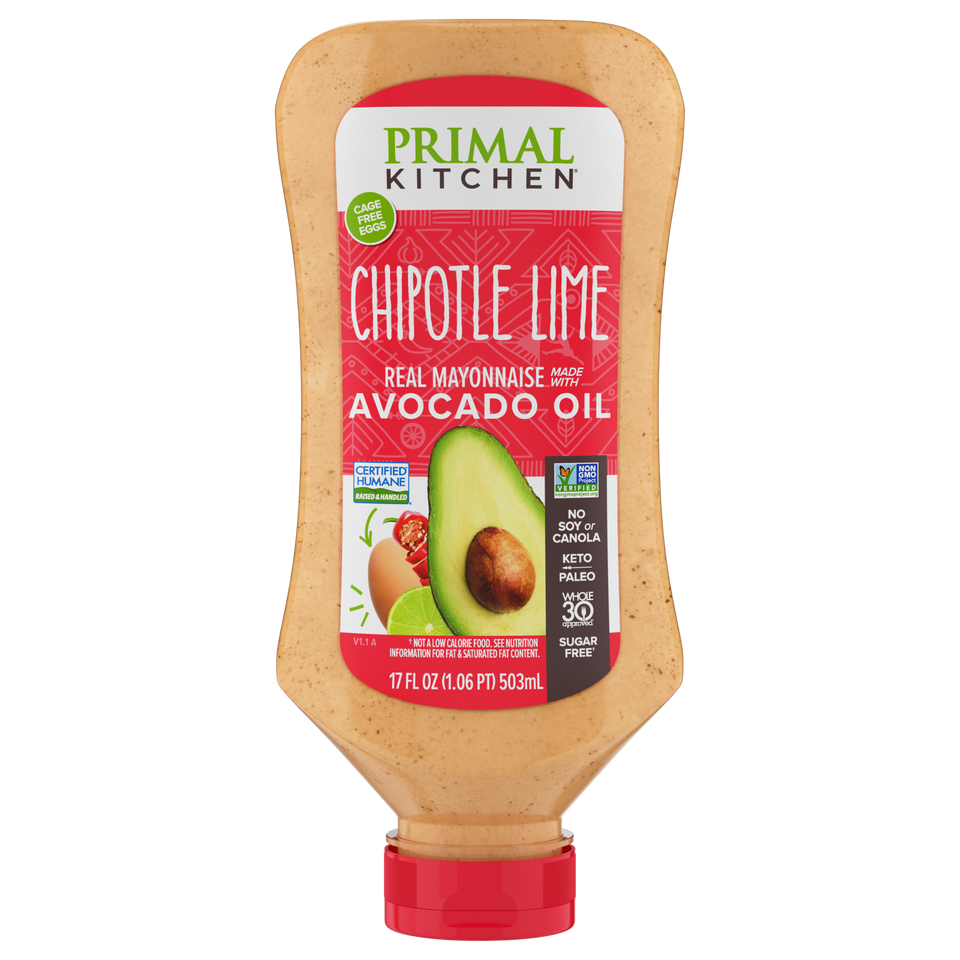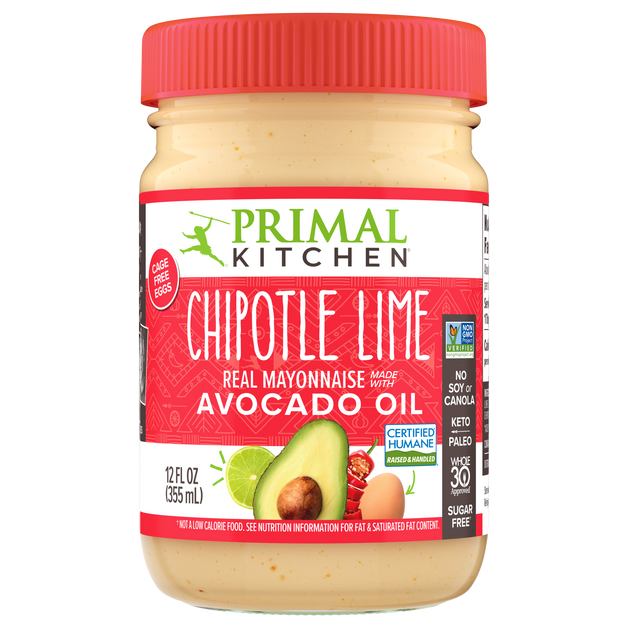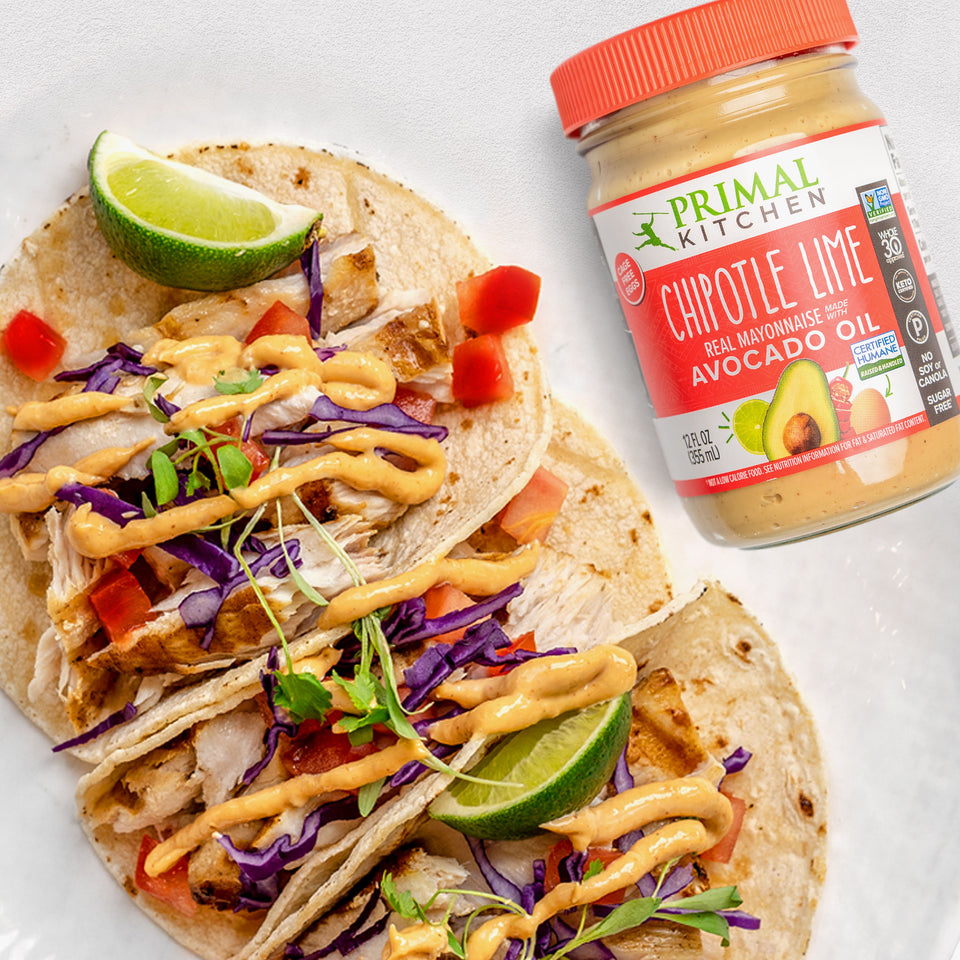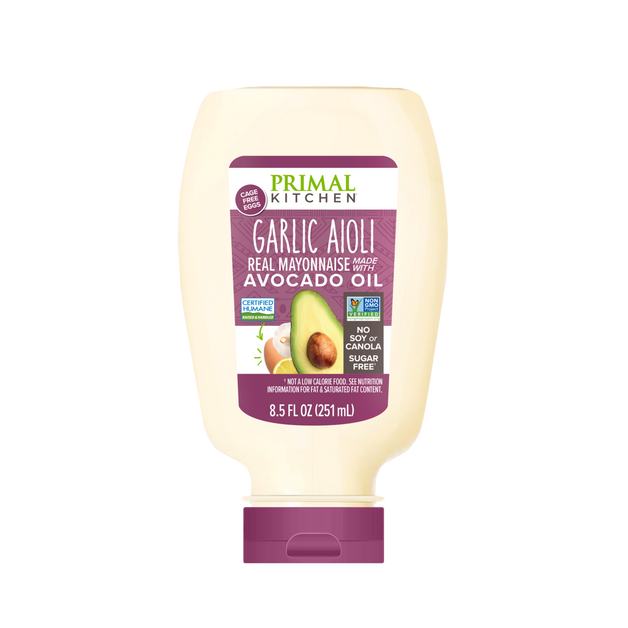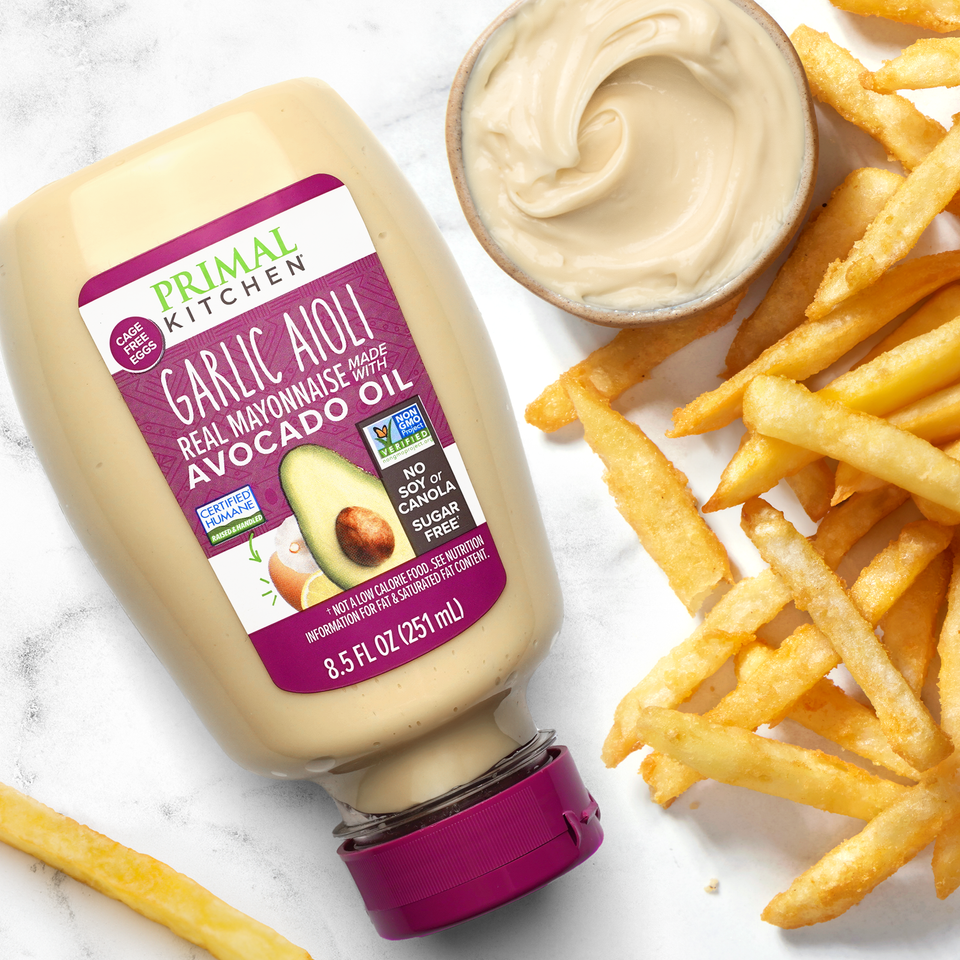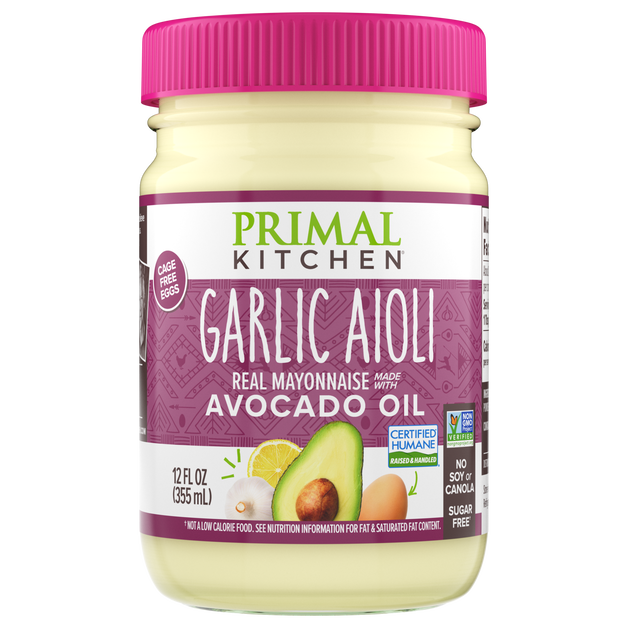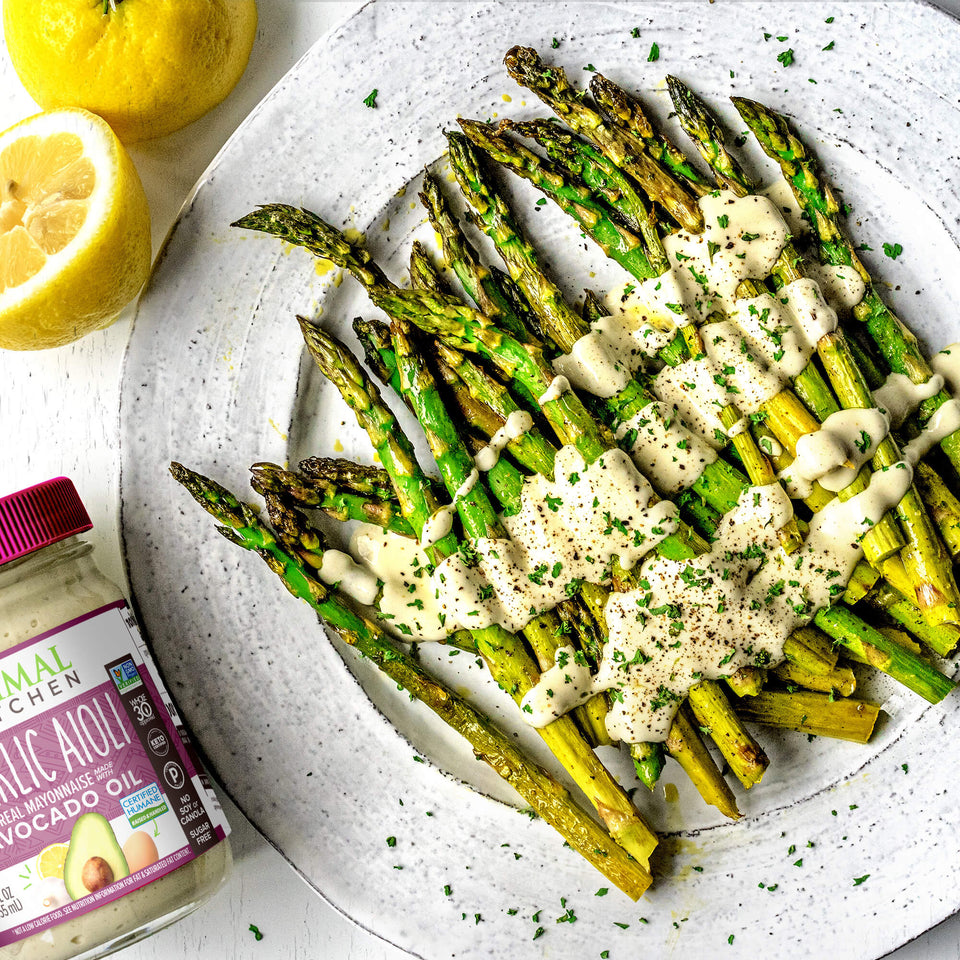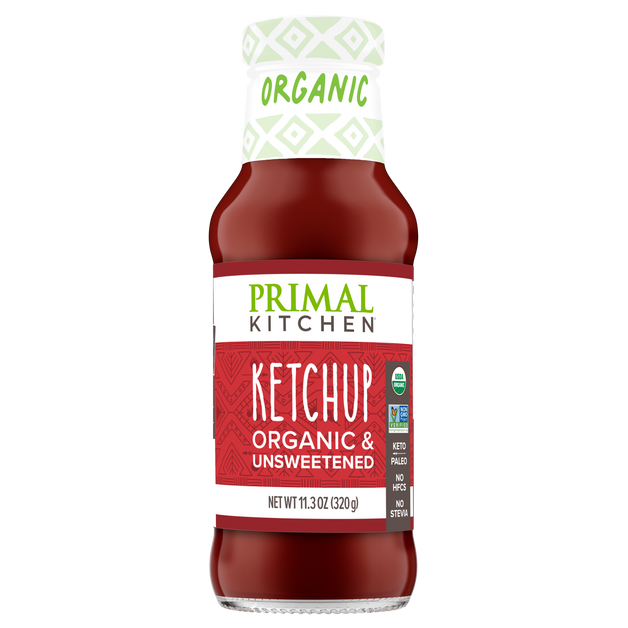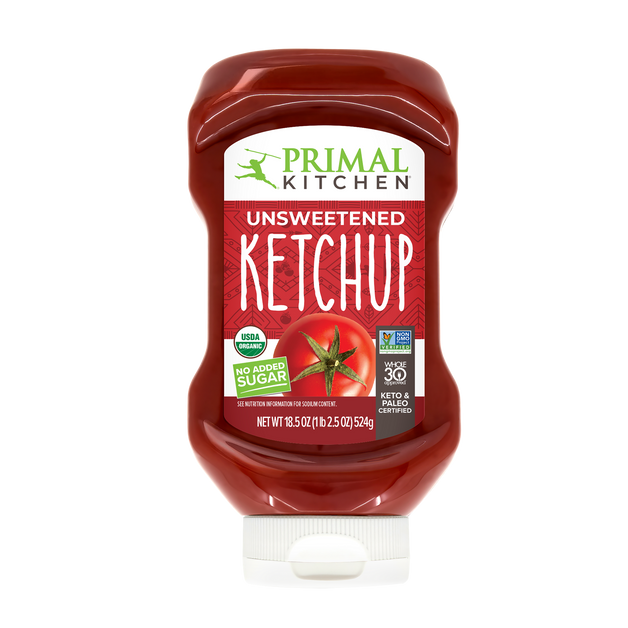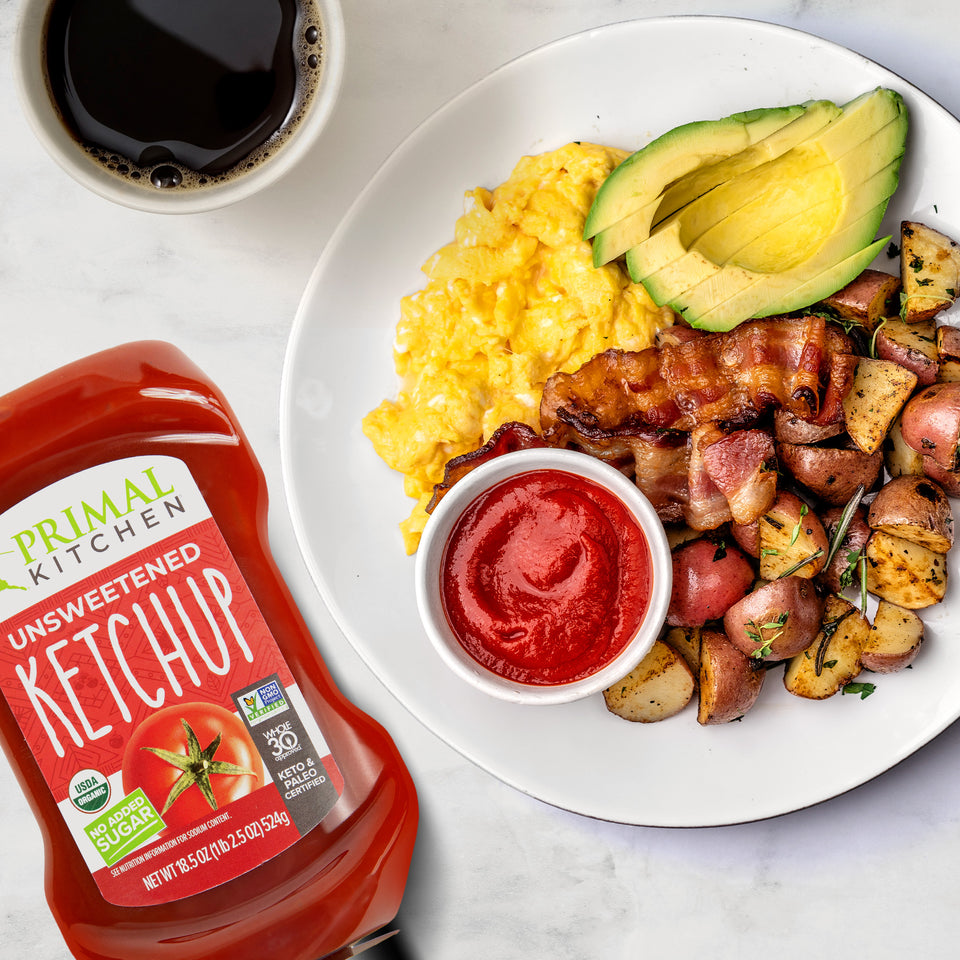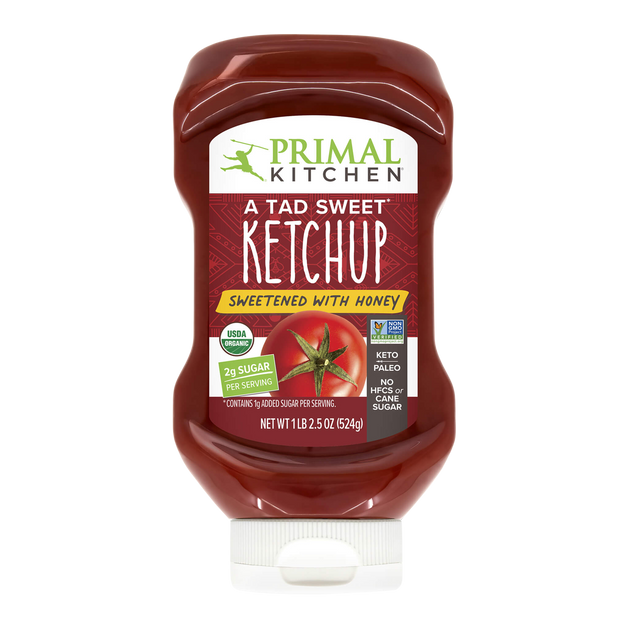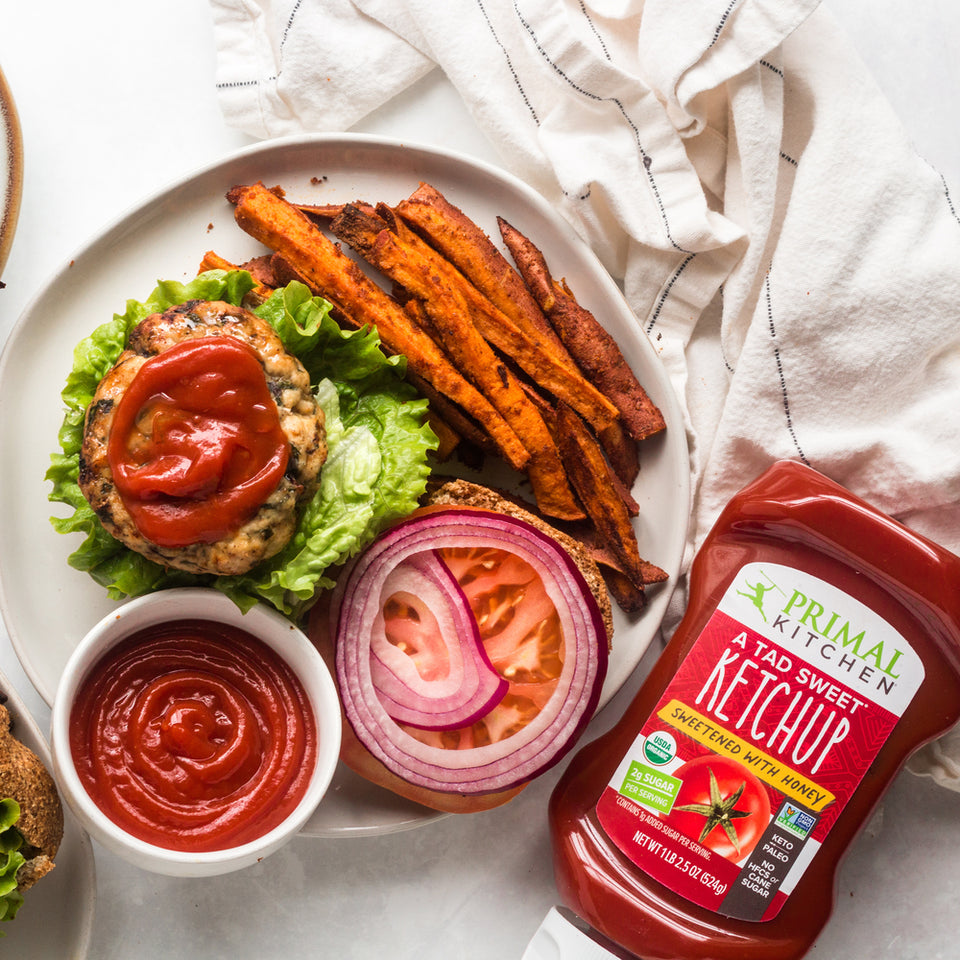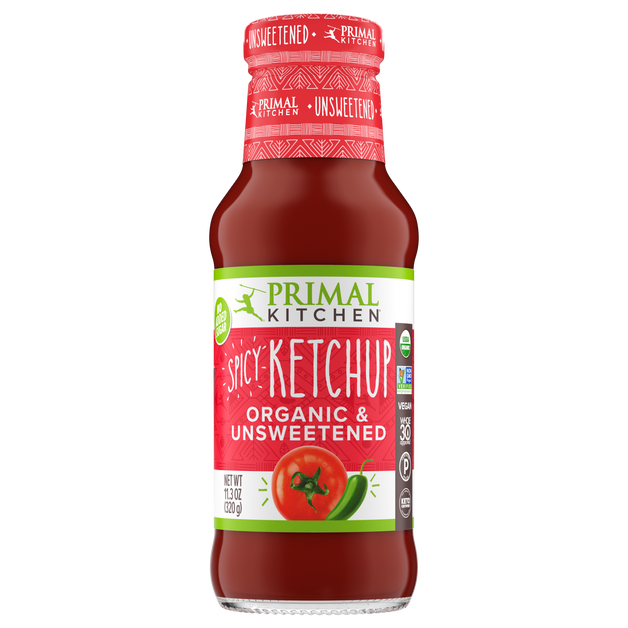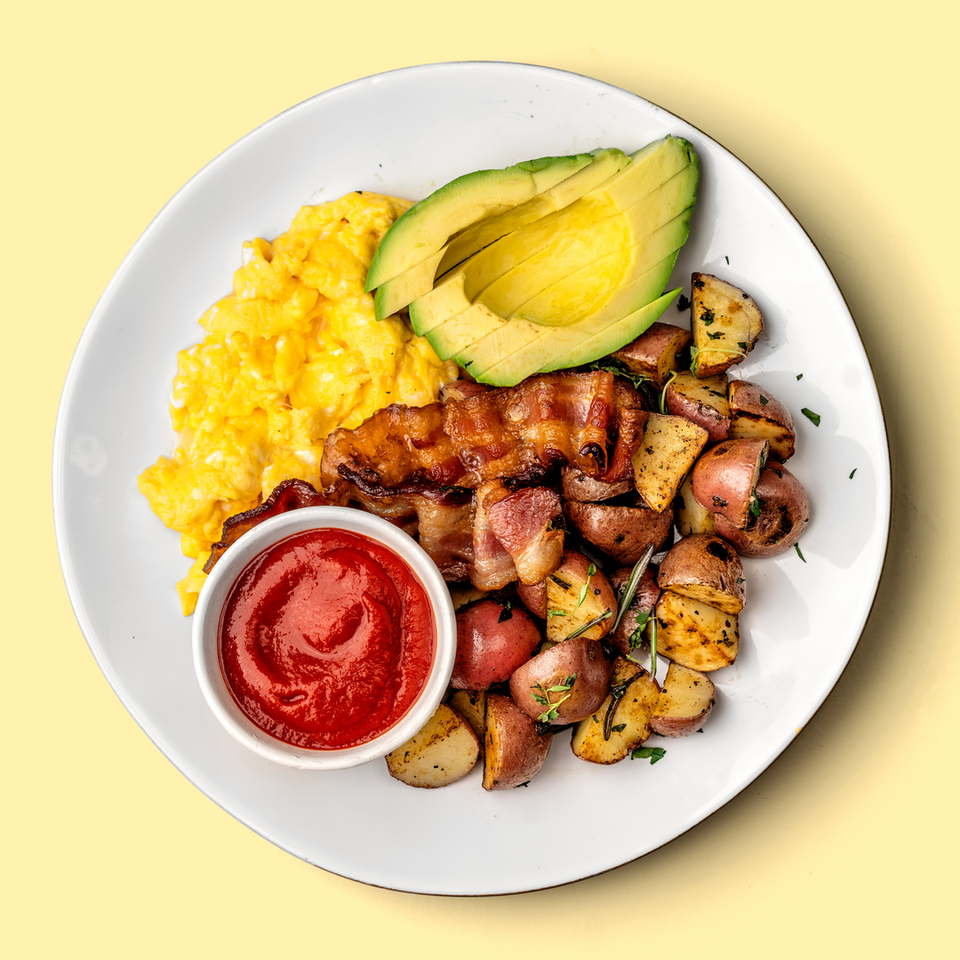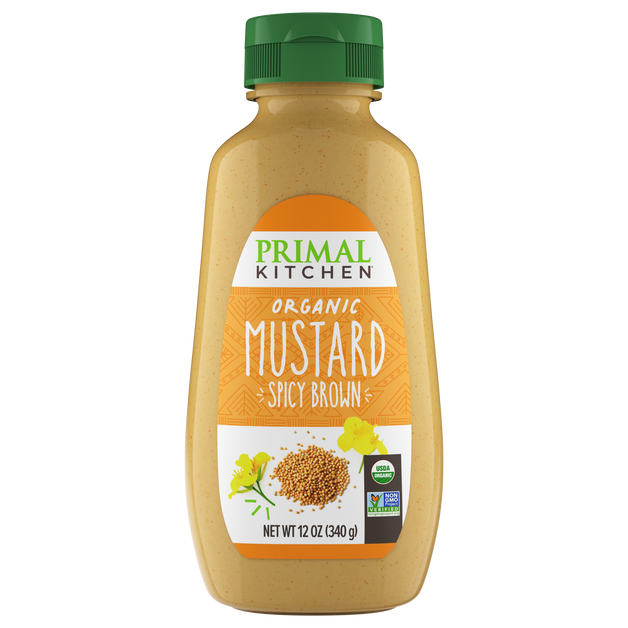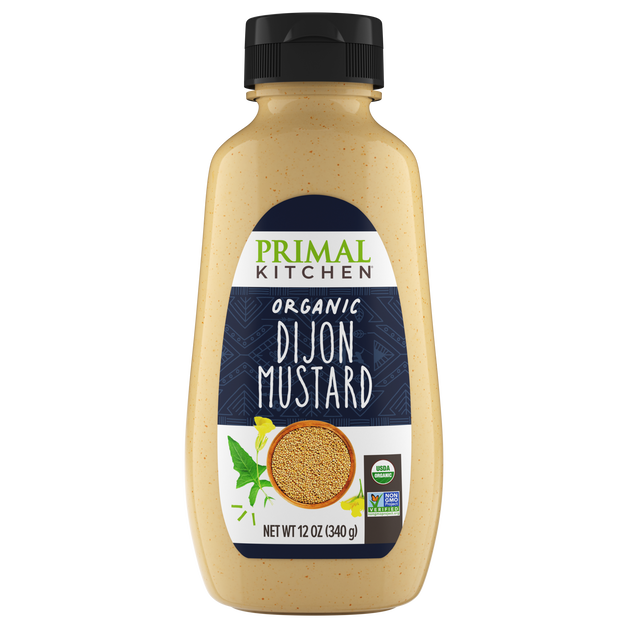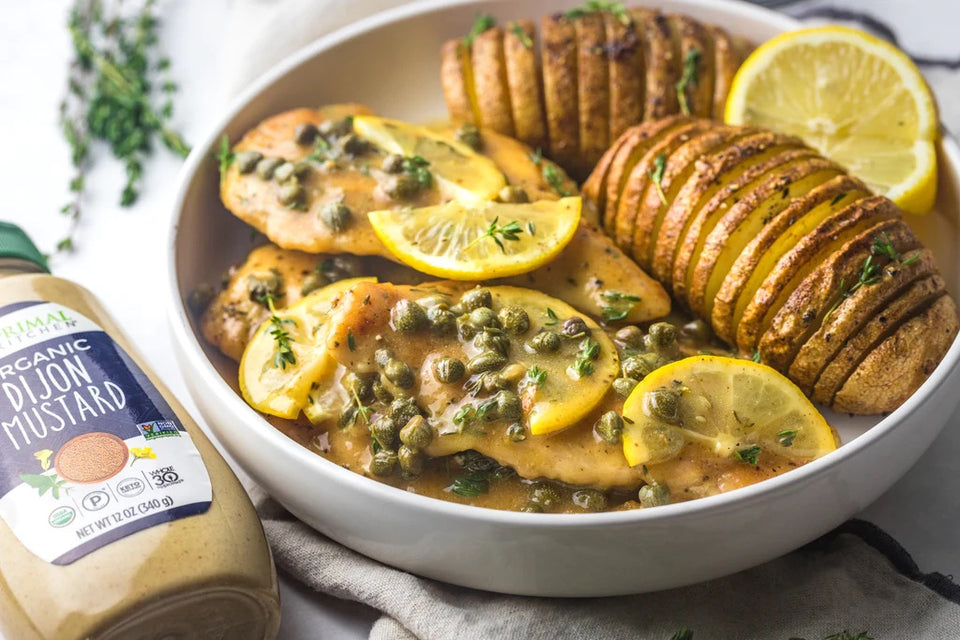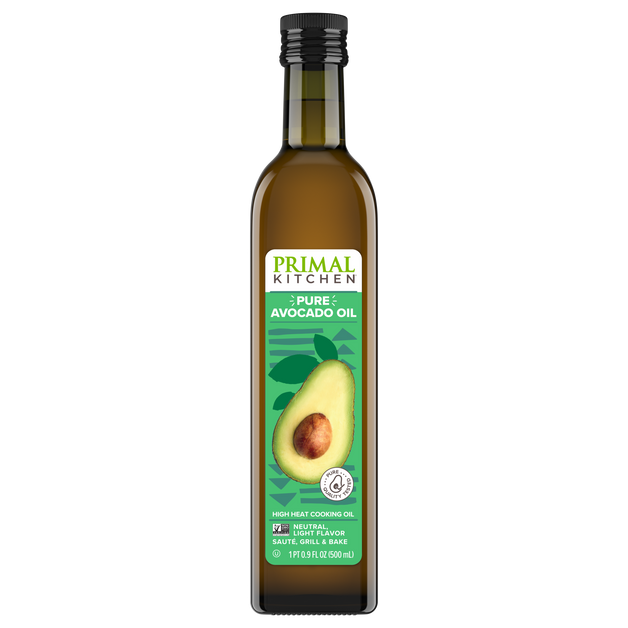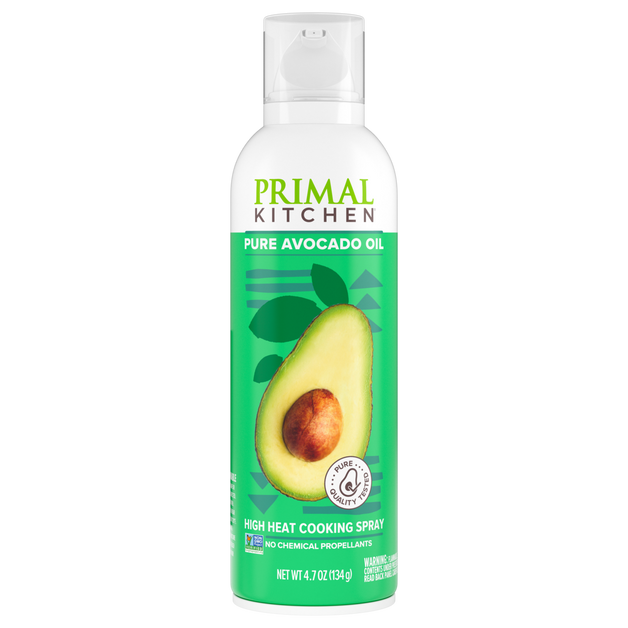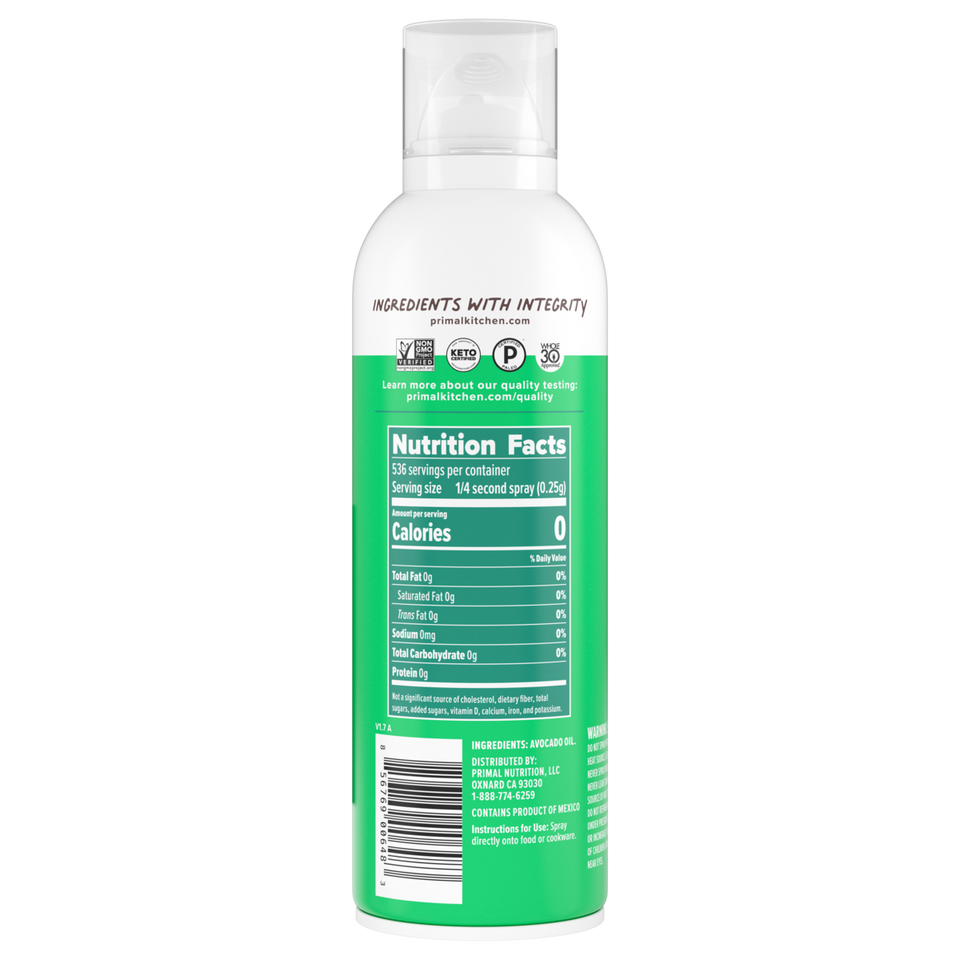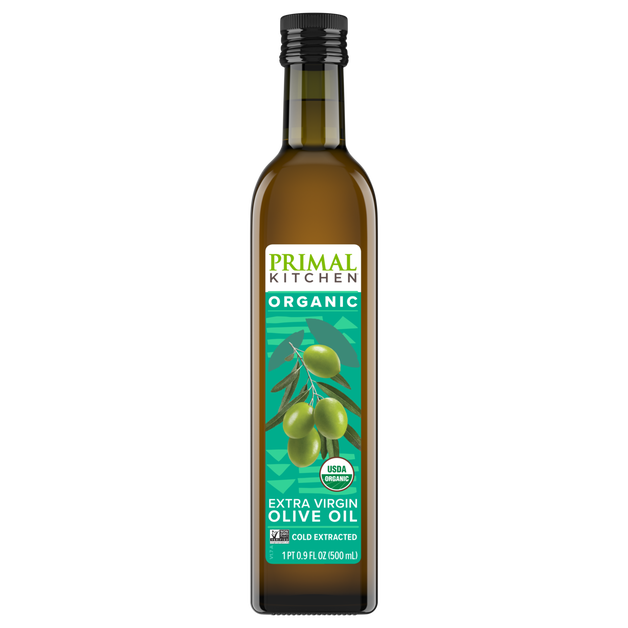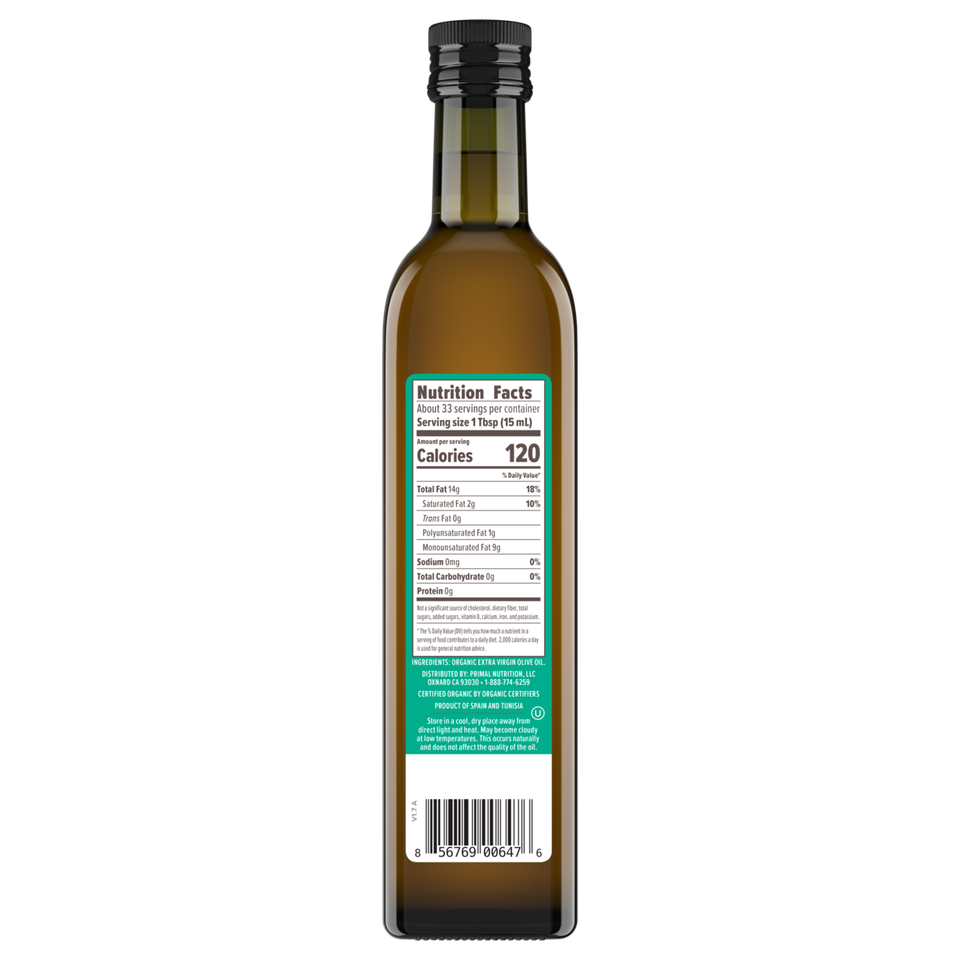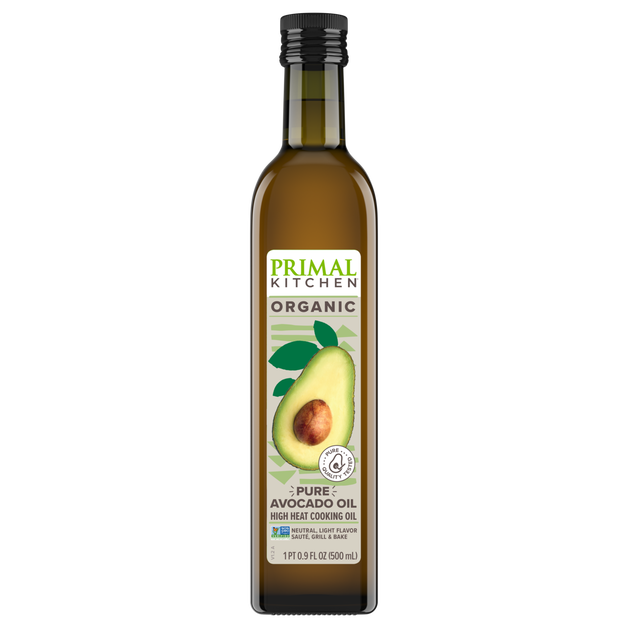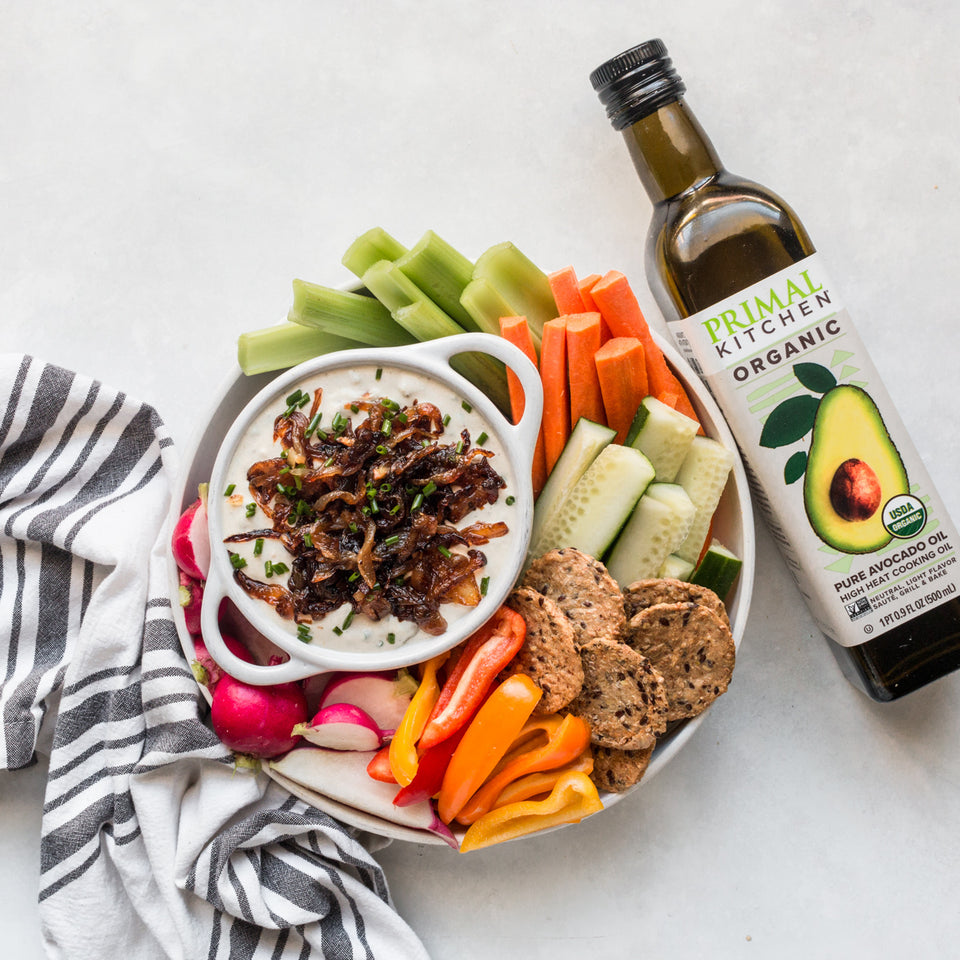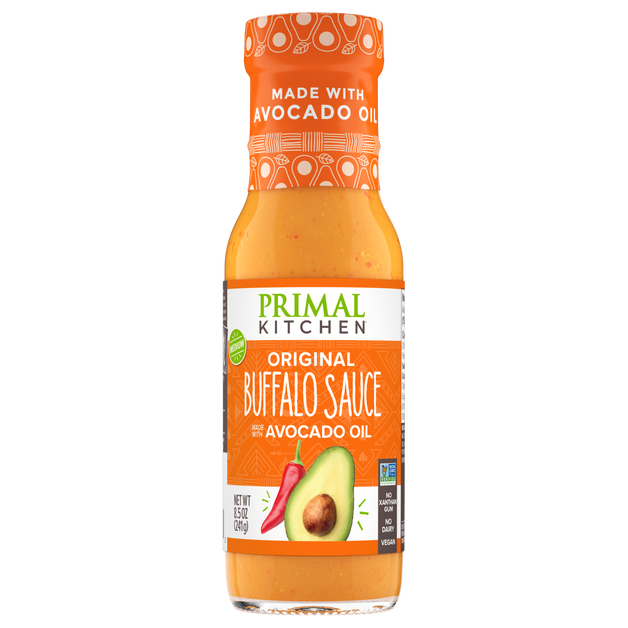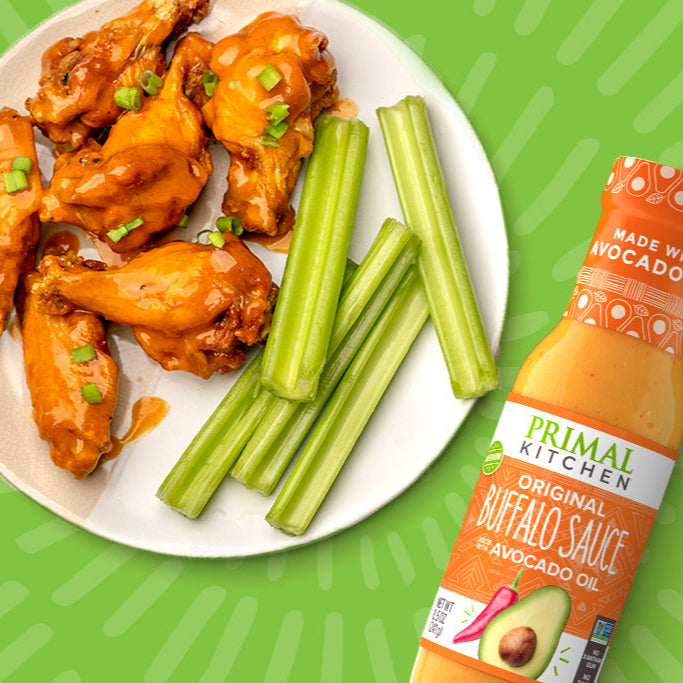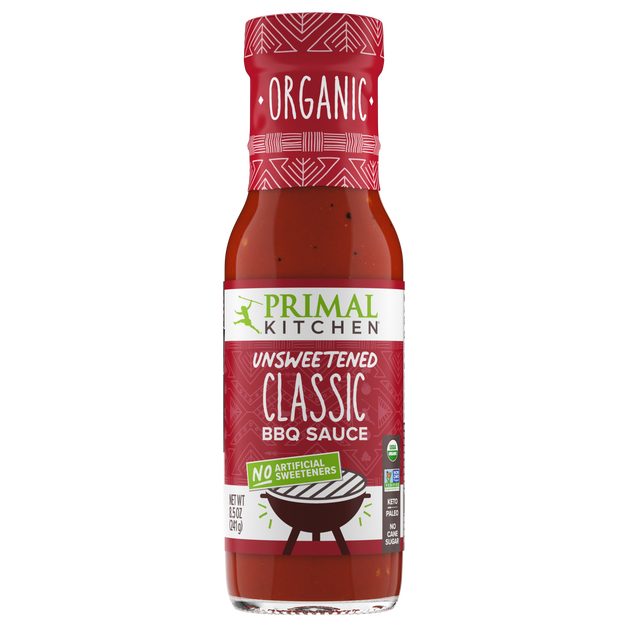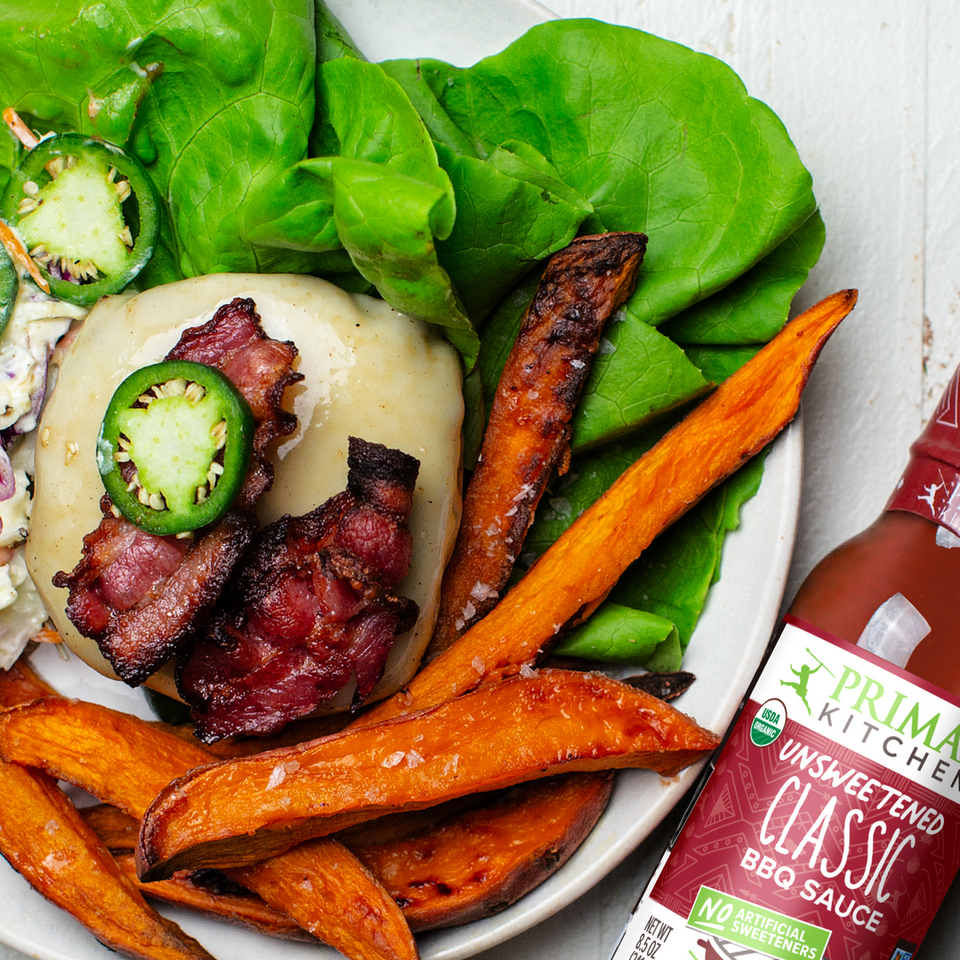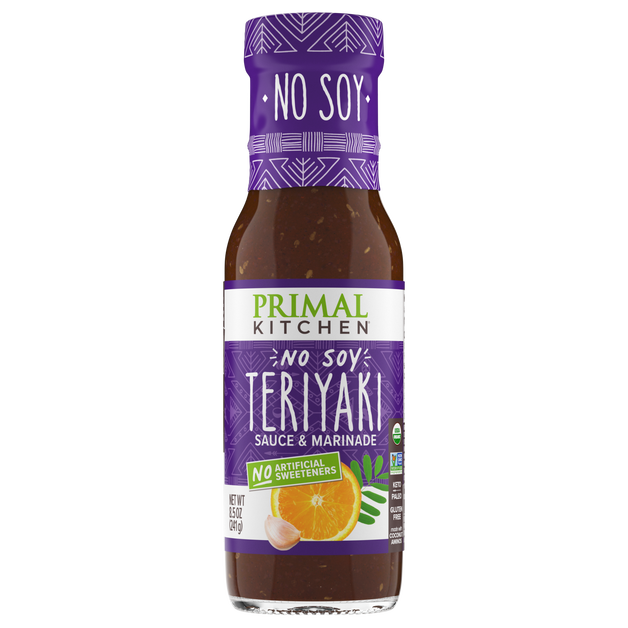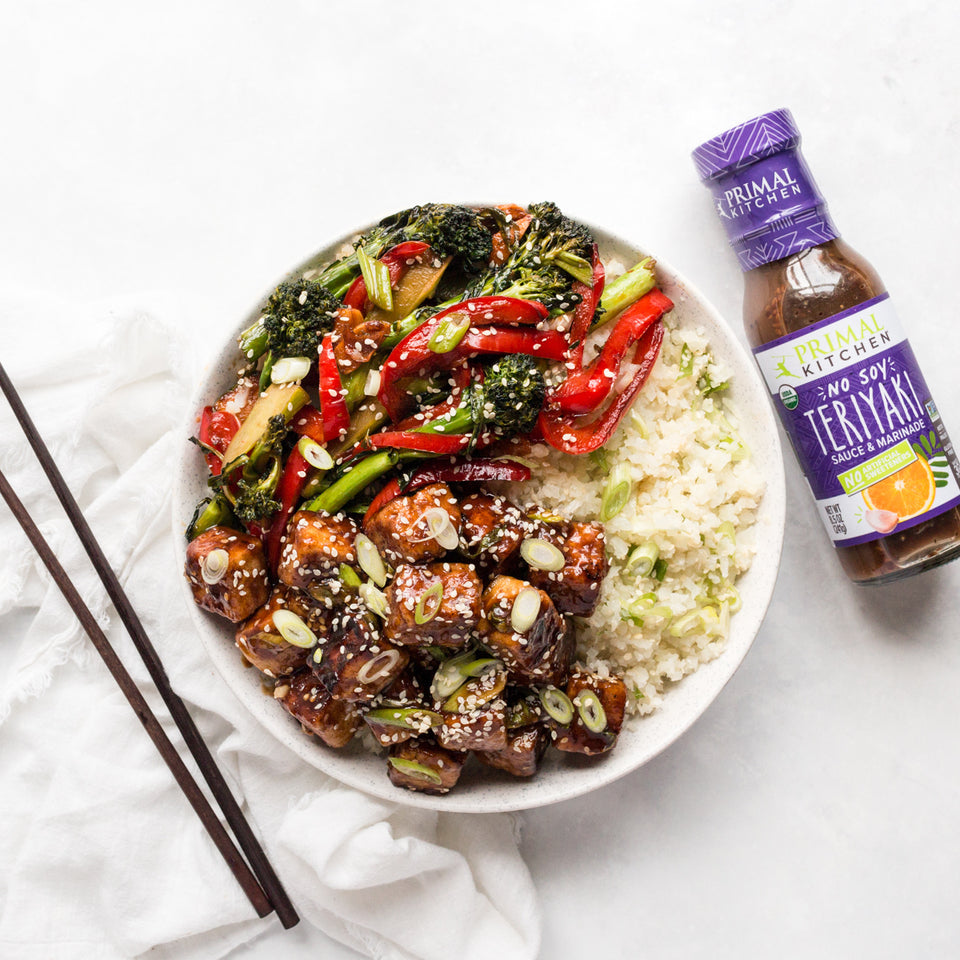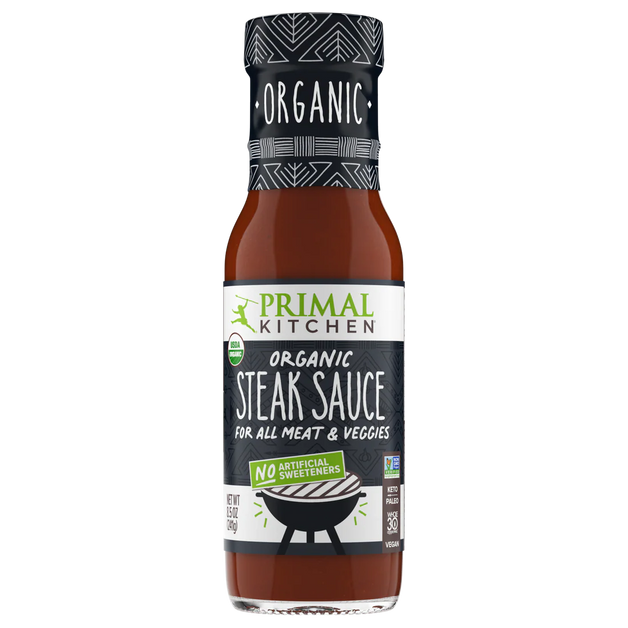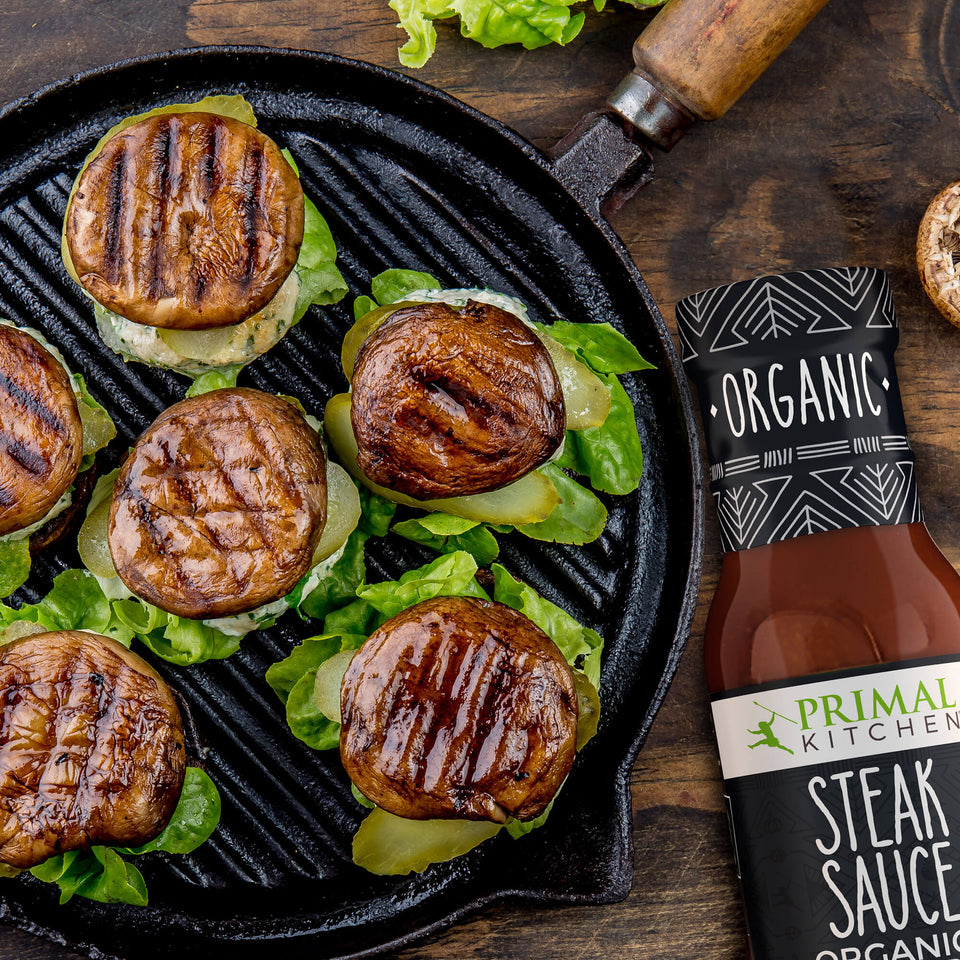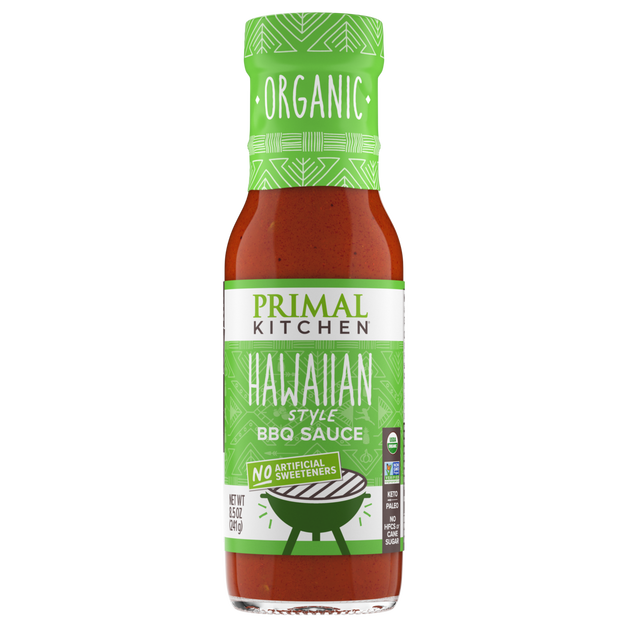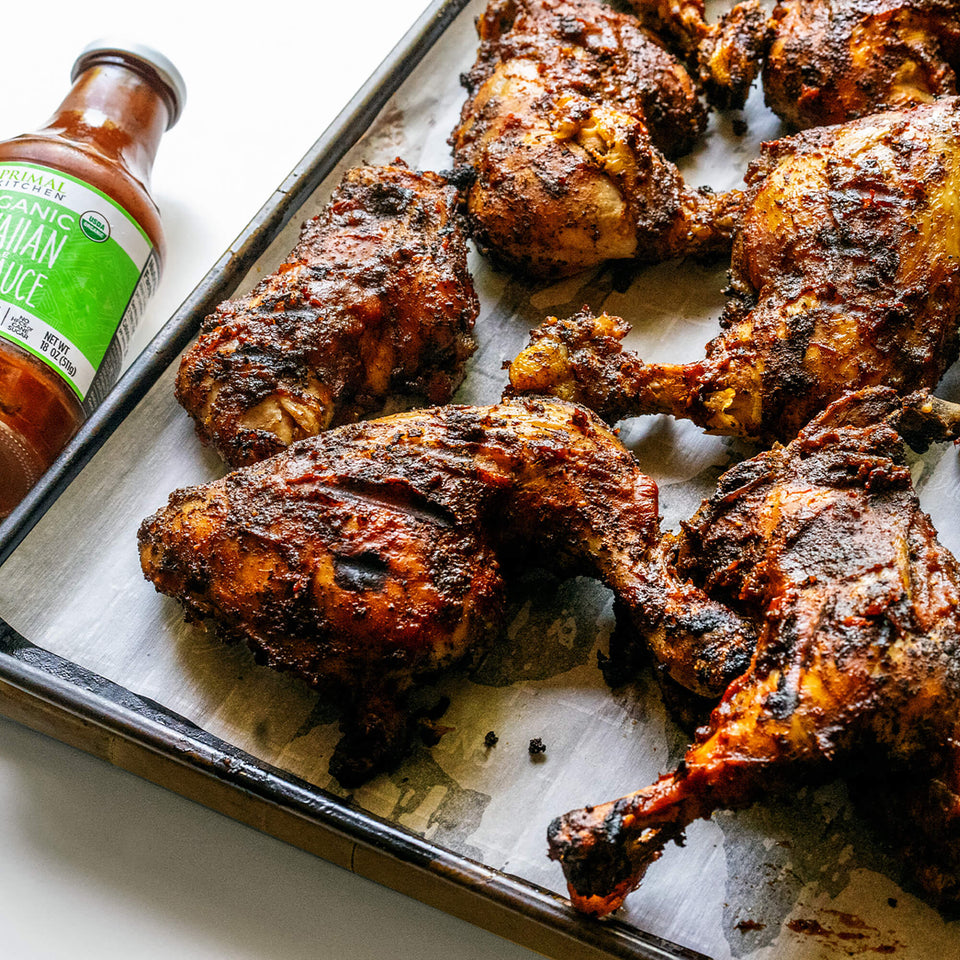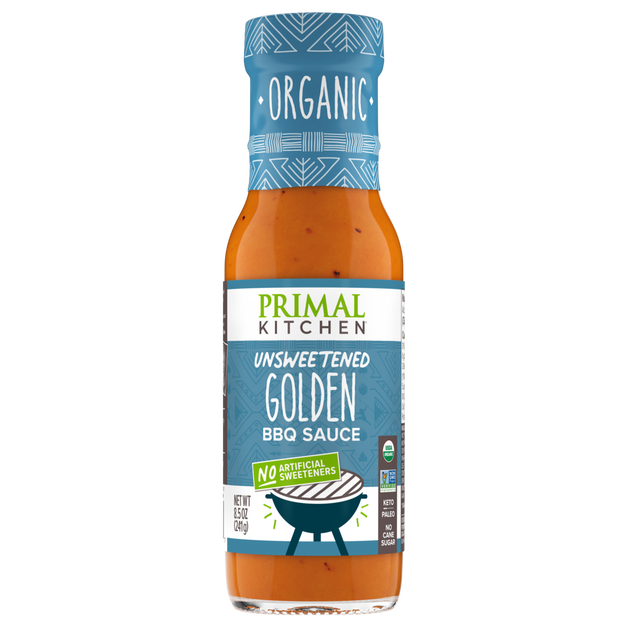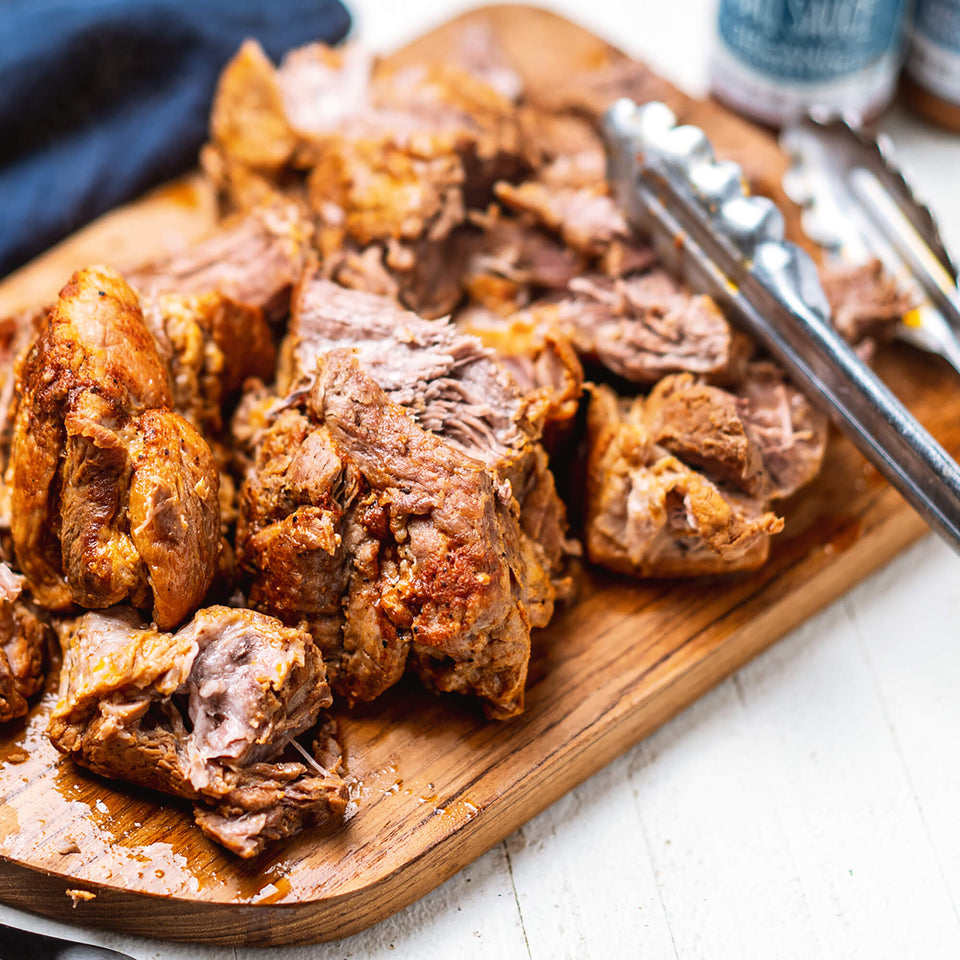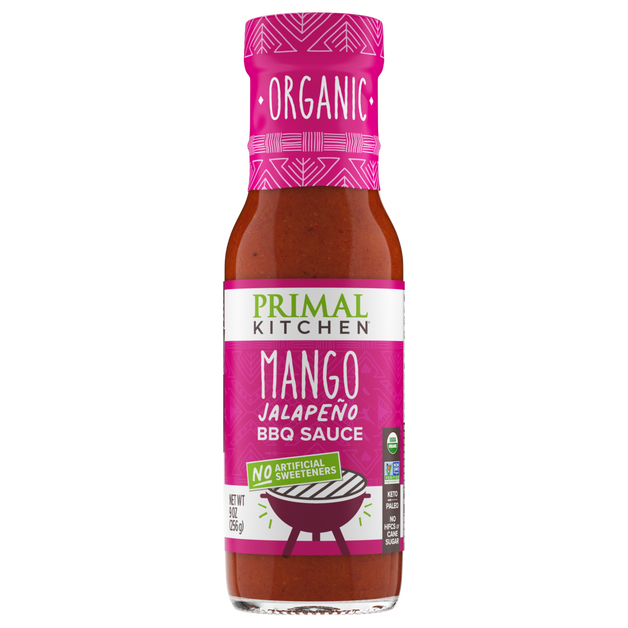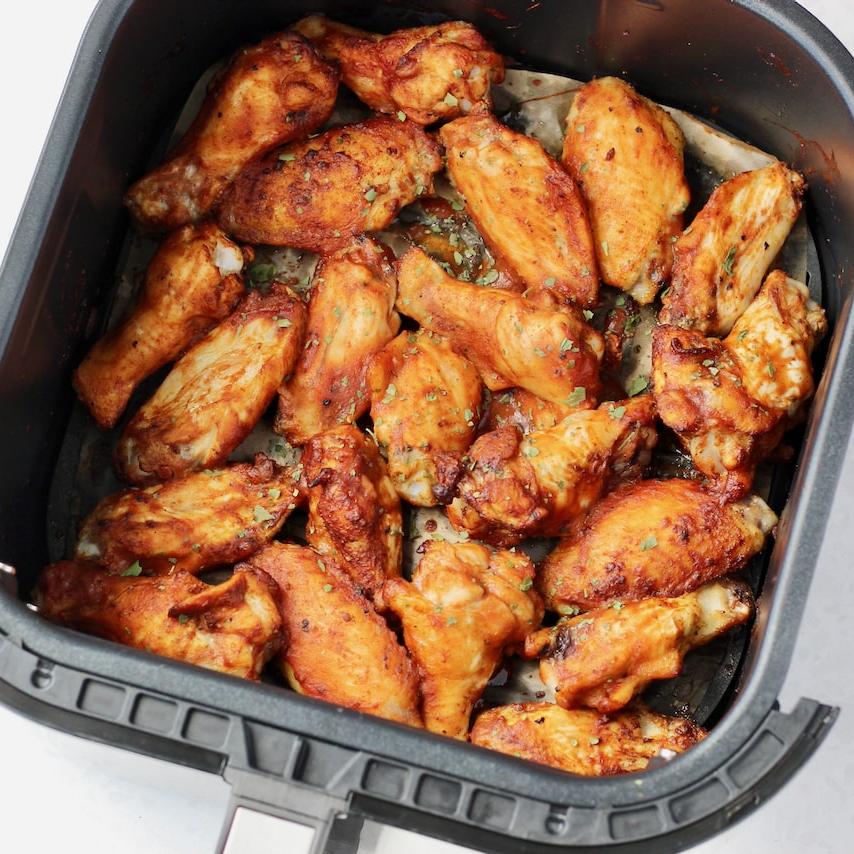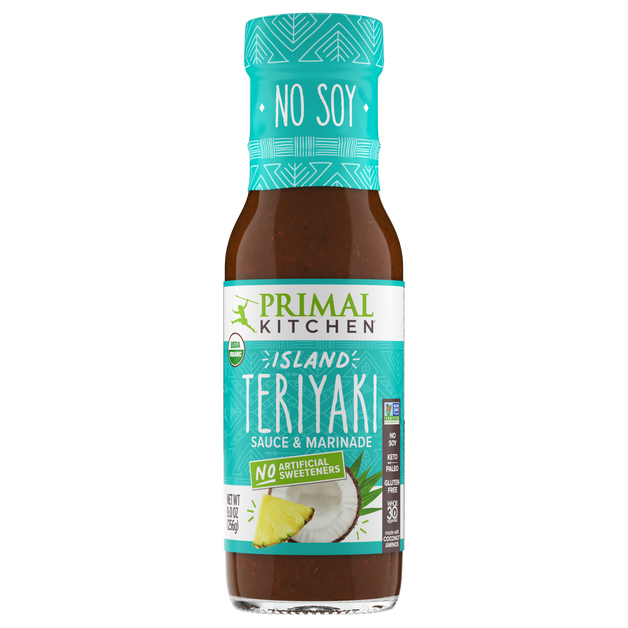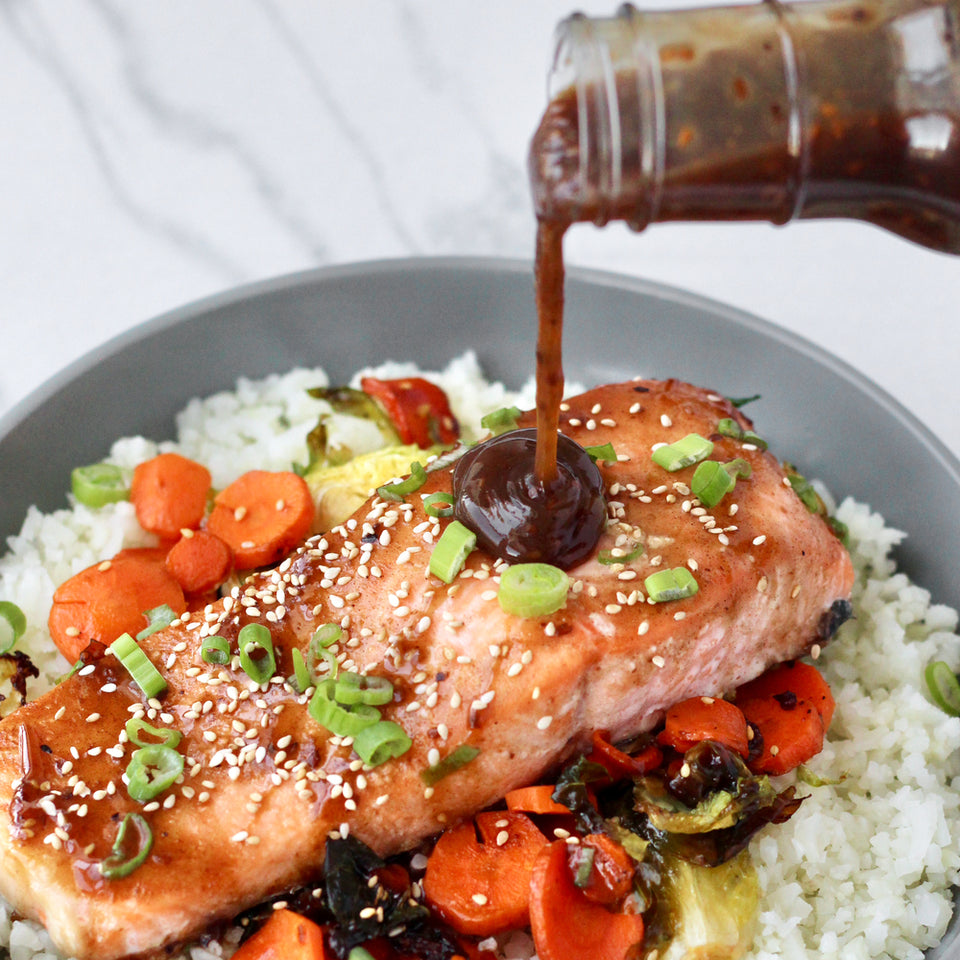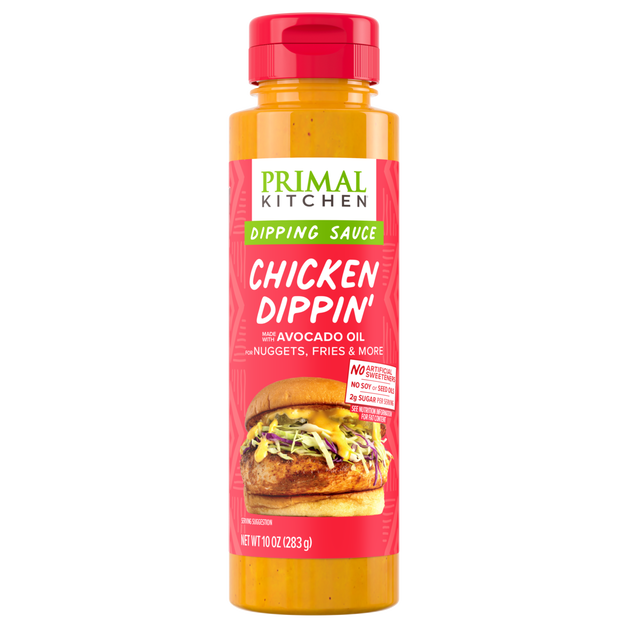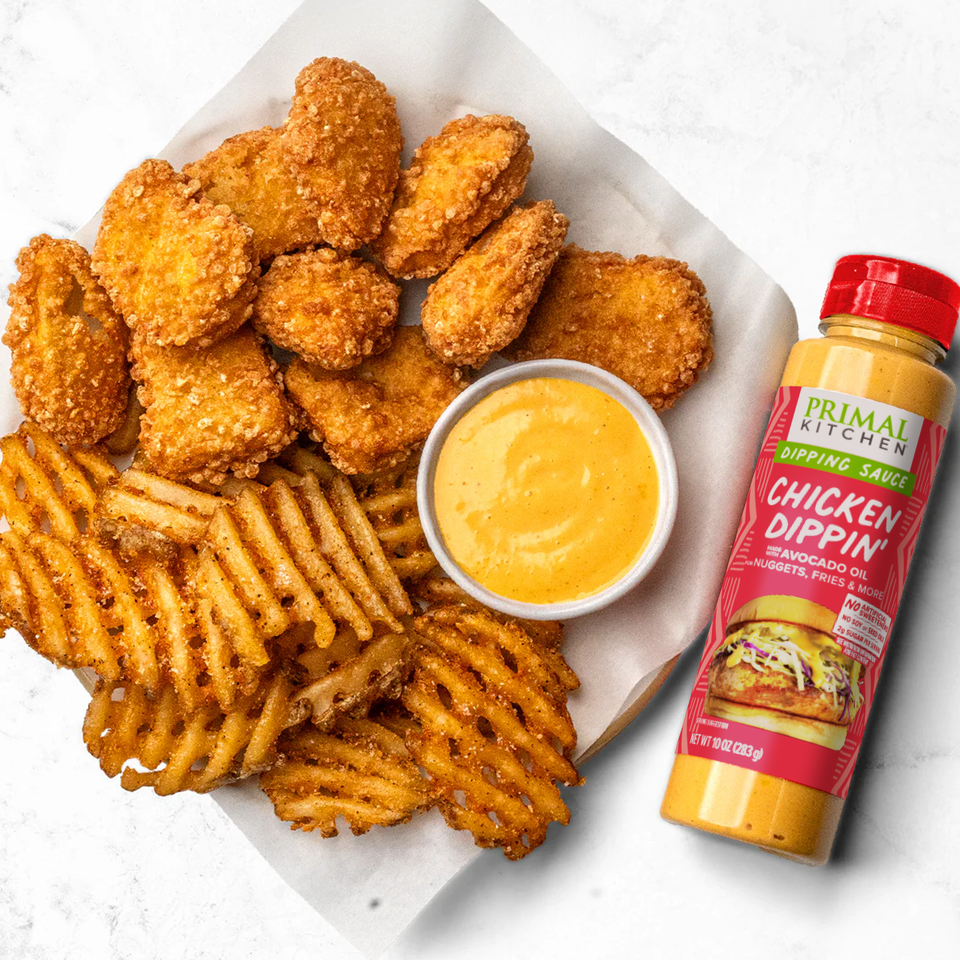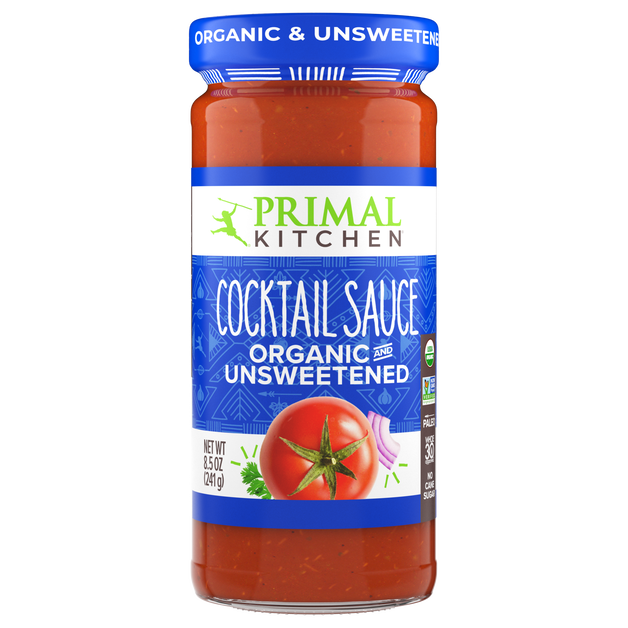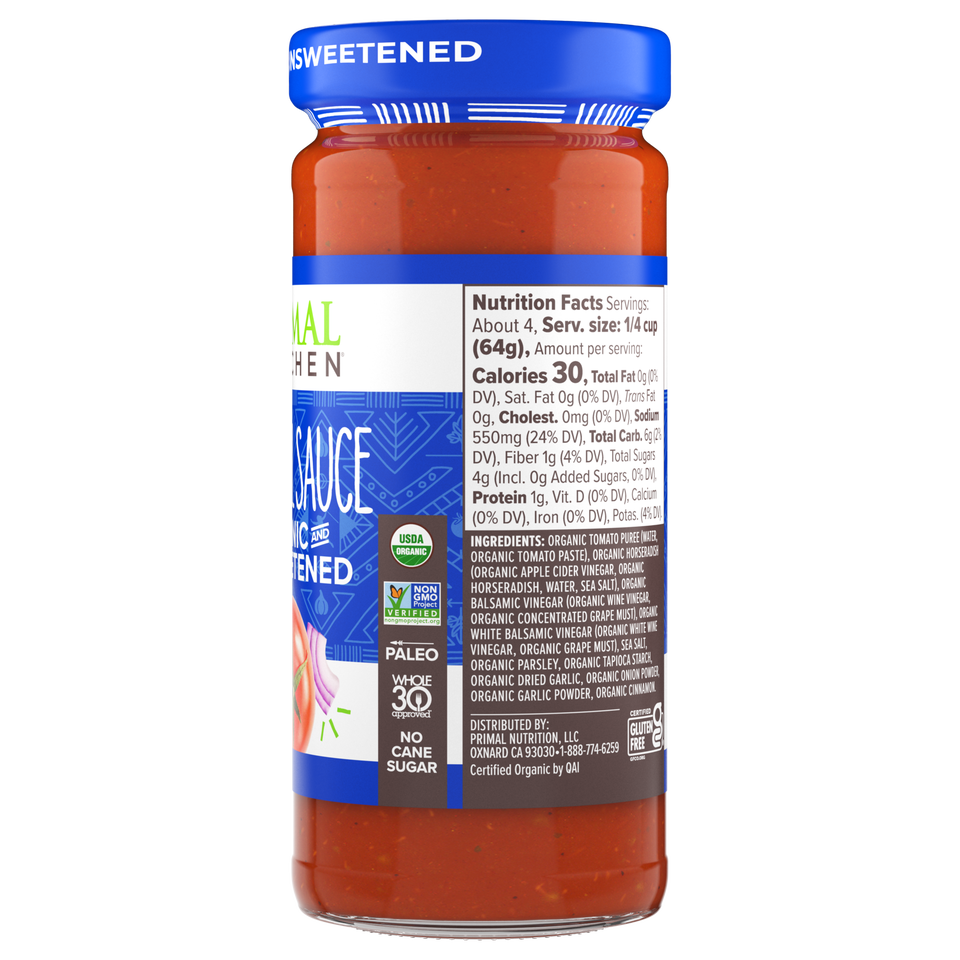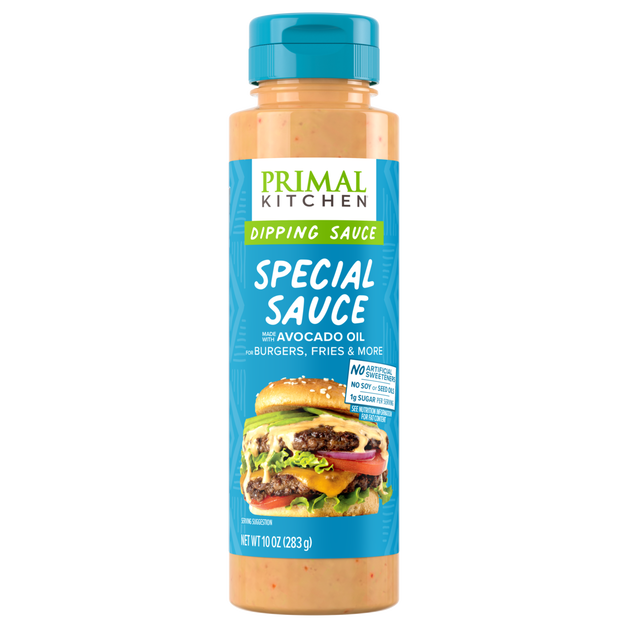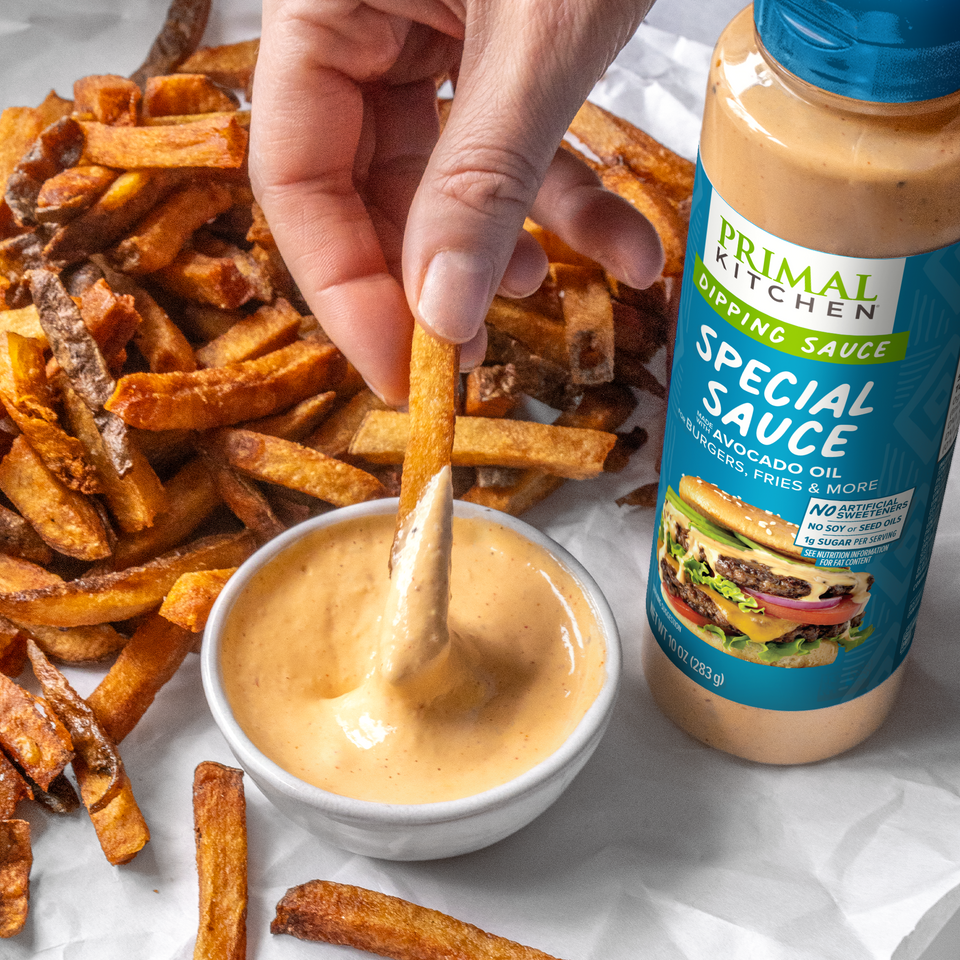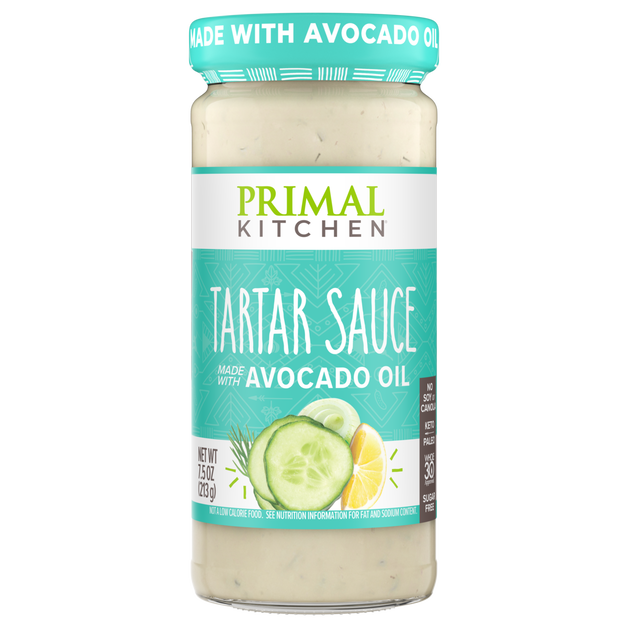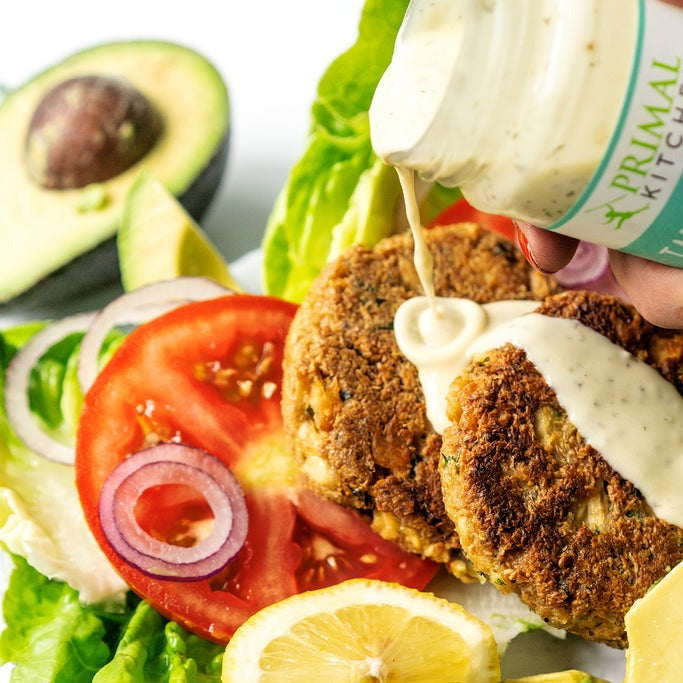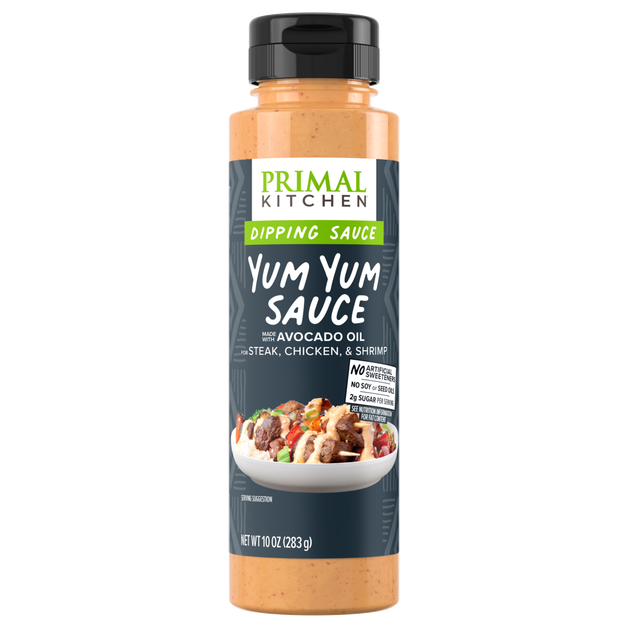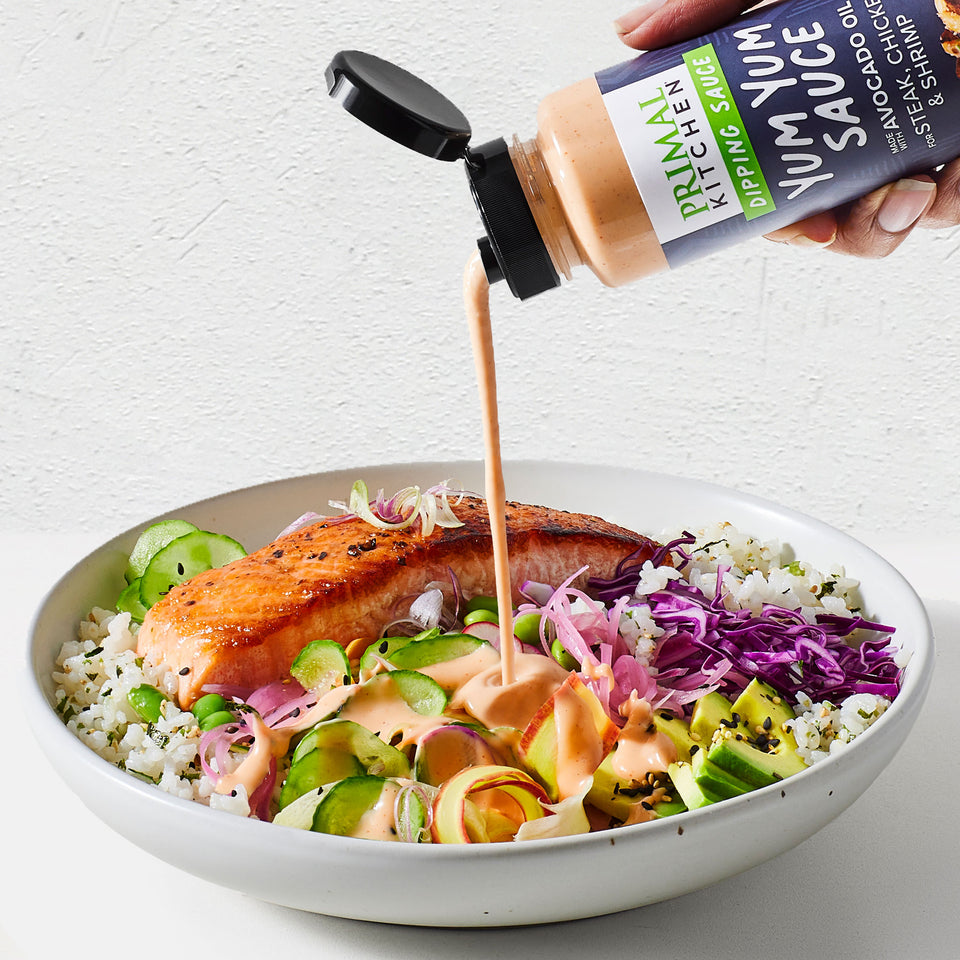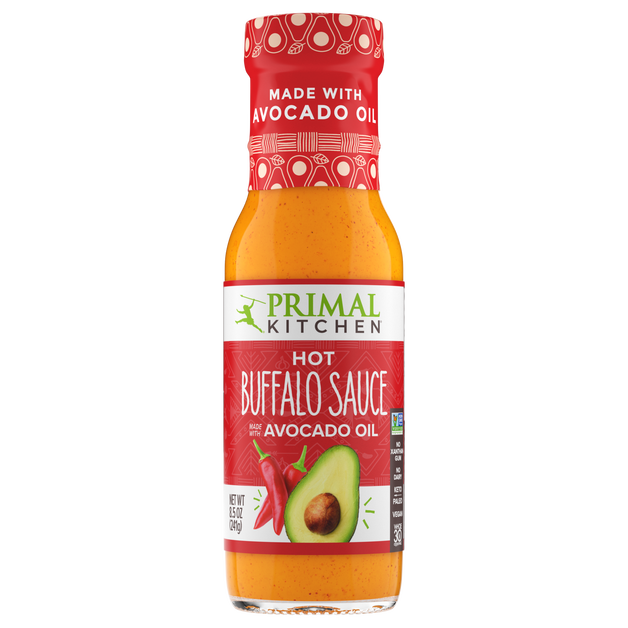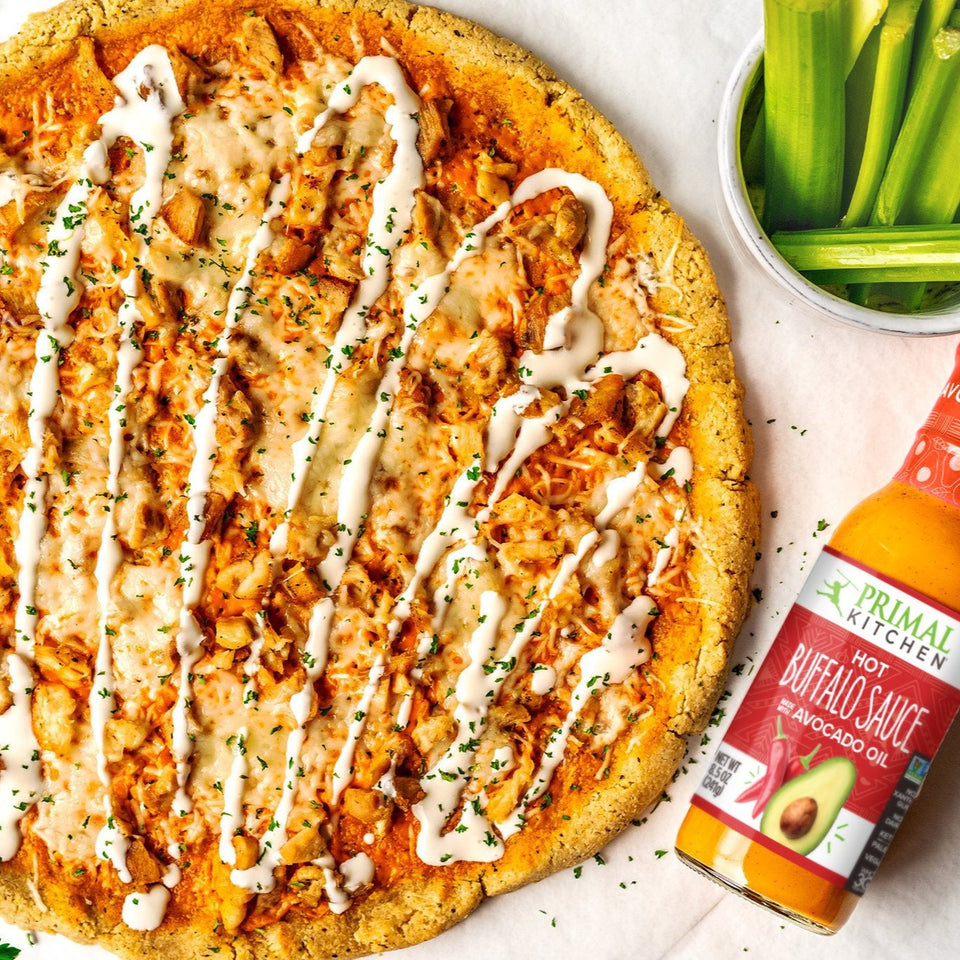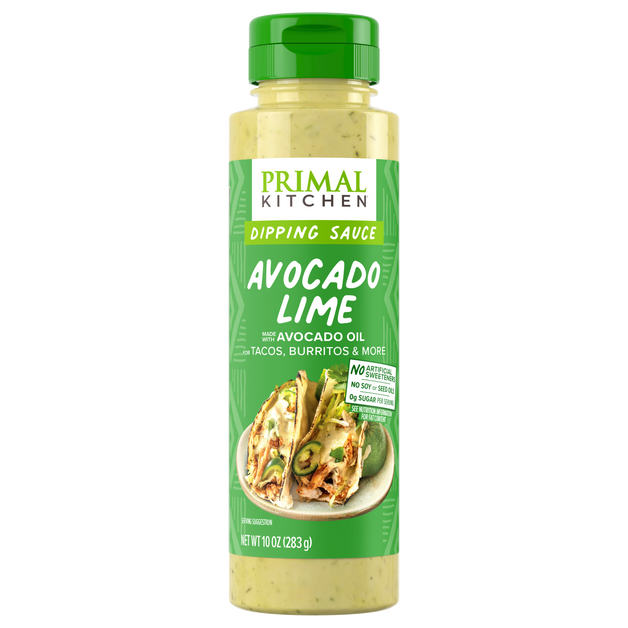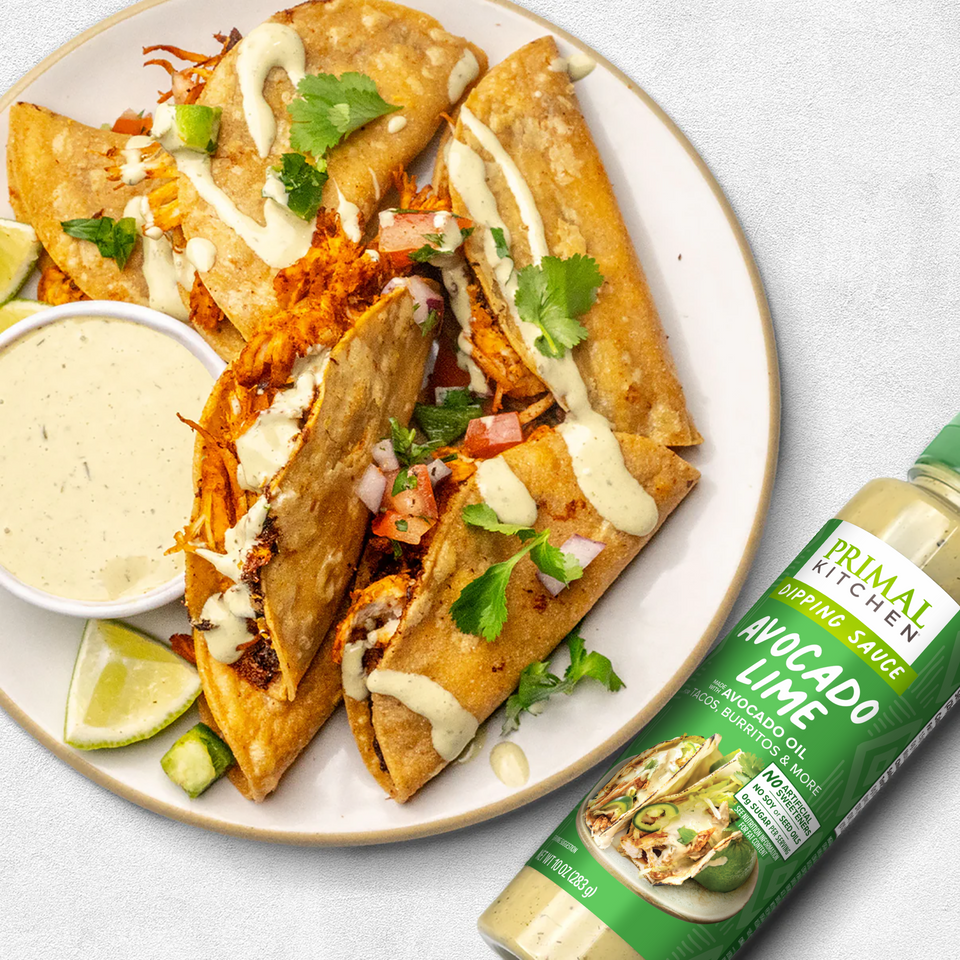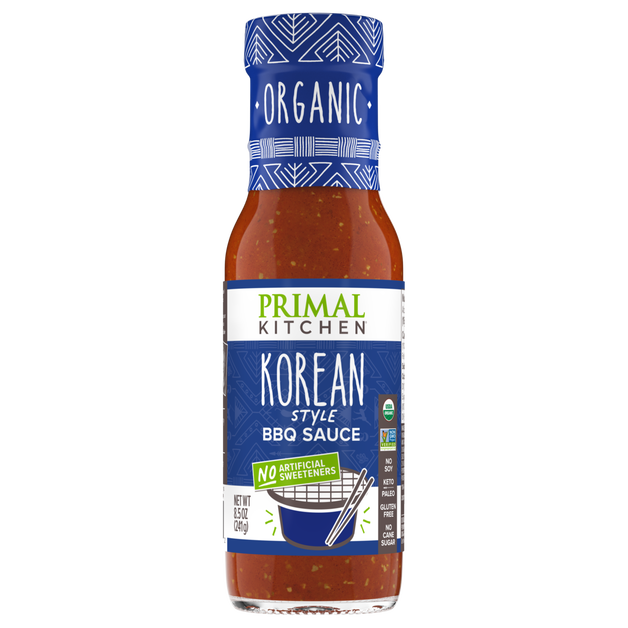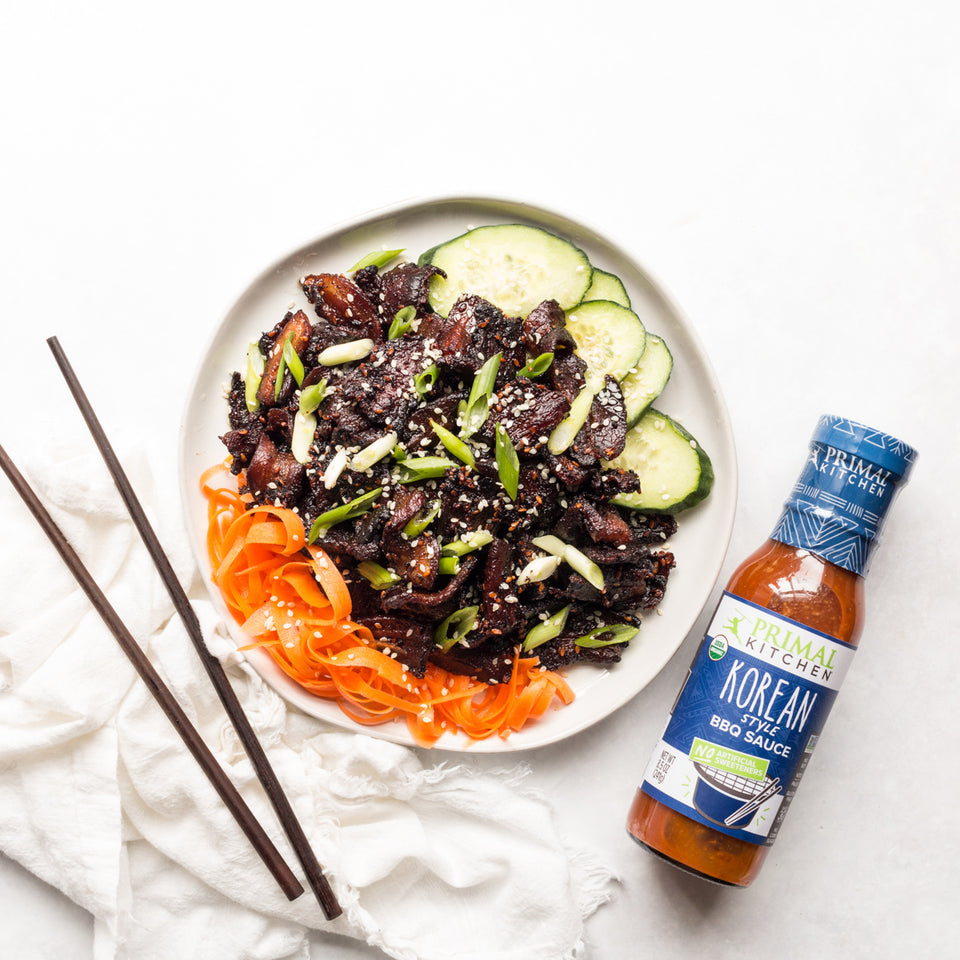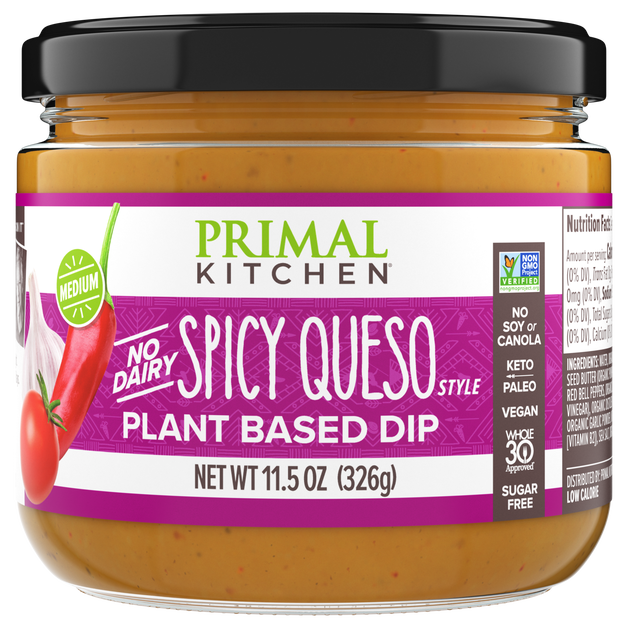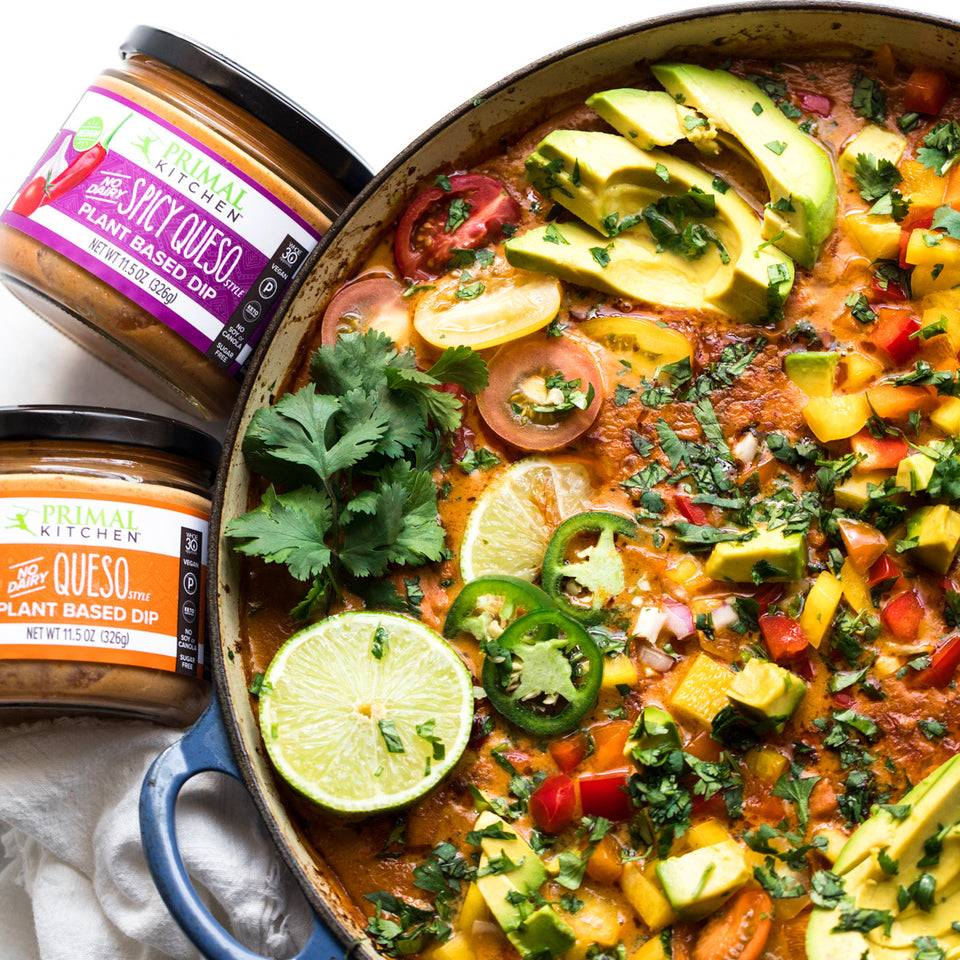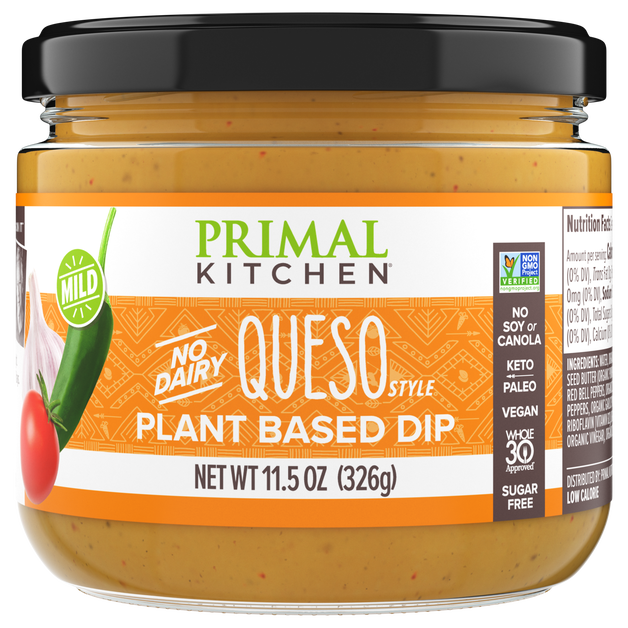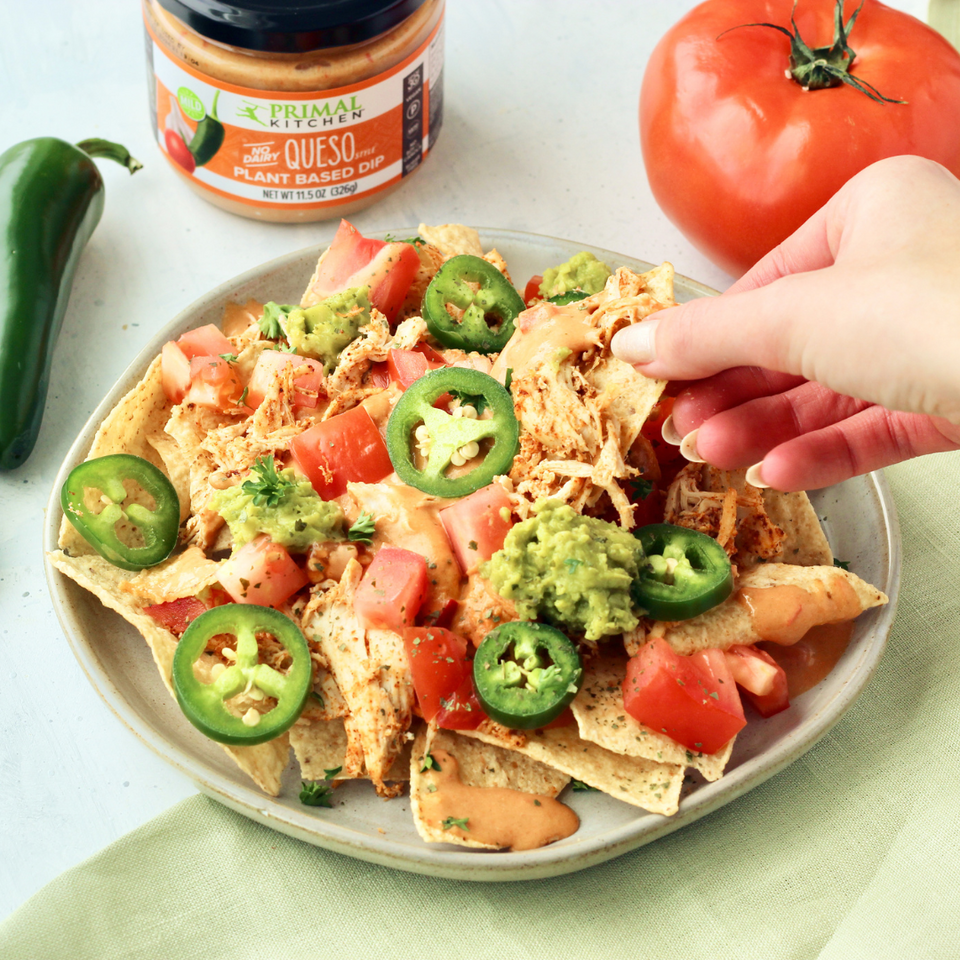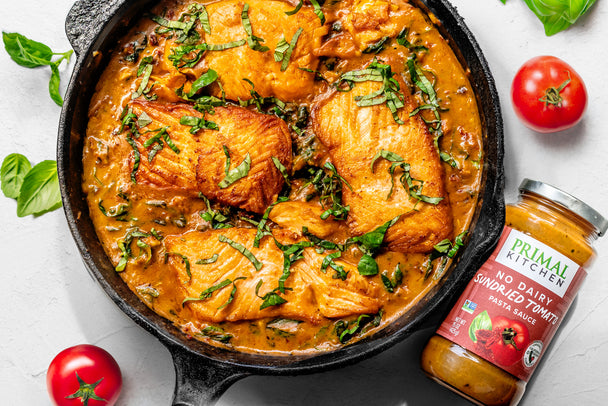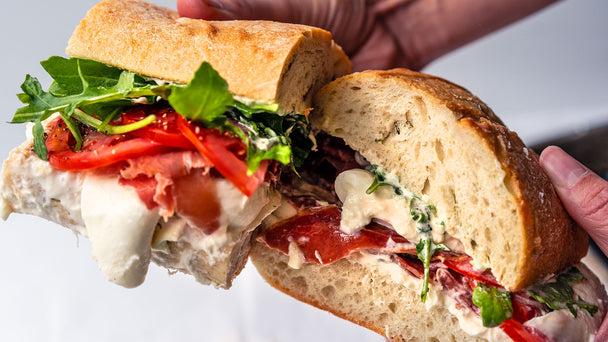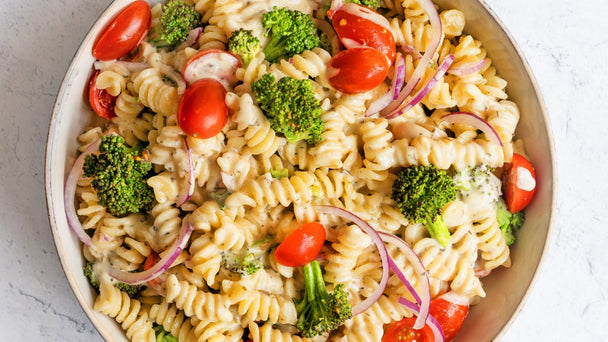Fast Facts at a Glance
- Get to know common seed oils: Canola, soybean, sunflower, safflower, corn, and vegetable oils
- Easy swaps: Avocado oil and olive oil are not seed oils
- Hot tip: Read labels carefully; seed oils pop up in all sorts of products
- Real-food win: Primal Kitchen Pure Avocado Oil is seed-oil-free and great for high heat cooking
Choosing to minimize or eliminate seed oils from your diet can feel like a big undertaking. Many of the prepared and packaged foods at the grocery store contain seed oils like canola, soybean, or sunflower oil. Everything from conventional salad dressing and condiments to baked goods, snack foods, frozen meals, and even things like spice blends and coffee creamers can contain seed oils. Restaurant foods also commonly contain these oils. Where do you start?
Avoiding seed oils isn’t as hard as you might think, but it does take effort given how prevalent they are in the modern food landscape. The first step is to understand where seed oils show up in your food today. What products are you purchasing that contain seed oils? What oils do you cook with at home? Once you know how to spot them, you can start to swap them out for seed oil alternatives.
This guide will get you started on the path to a seed-oil-free diet.
How to Identify Seed Oils in Packaged Foods
Before eliminating seed oils from your diet, you need to know what is and is not a seed oil. “Seed oils” refer to plant-based oils that are refined from the seeds of the plant, often using harsh chemical solvents like hexane. Here’s a list of common seed oils to avoid:
- Canola oil / rapeseed oil
- Soy oil / soybean oil
- Corn oil
- Cottonseed oil
- Grapeseed oil
- Rice bran oil
- Sunflower oil
- Safflower oil
- Vegetable oil
When you start to read labels and look for these ingredients, you’ll probably be surprised at the sheer number and variety of products that contain seed oils!
Need a refresher about what’s a seed oil and what’s not?
Check out our guide: What Are Seed Oils?
The good news is that more and more food companies are recognizing that consumers want products made with alternatives like avocado oil or olive oil. When Primal Kitchen introduced Avocado Oil Mayo in 2015, we had few companions on the no-seed-oil train. Now you can wander the aisles of just about any supermarket and find options like Siete tortillas, Chomps beef sticks, Wilde chips, and Lesser Evil popcorn made without seed oils. We love to see it.
Seed Oil Alternatives for Home Cooking
Once you know how to spot them, you can start making strategic swaps to ensure that seed oils have no place in your fridge or pantry. The first and easiest place to start is your cooking oils. What do you reach for when adding oil to a sauté pan, tossing vegetables in oil before roasting, or greasing a cake pan? If the answer is canola, sunflower, vegetable oil, or shortening, let’s change that!
Avocado oil is a top-notch alternative for cooking because it contains good fats and has a neutral flavor that won’t clash with your ingredients. Plus, it stands up to high heat, so it’s perfect for roasting, sautéing, air frying, even baking. Just make sure your avocado oil is pure and quality tested. (Yes, Primal Kitchen's is!) Olive oil is also a great no-seed-oil option.
Salad dressings and condiments that don’t contain seed oils can be hard to find, but Primal Kitchen has you covered on that front with salad dressings like our classic Ranch and Caesar, dipping sauces like Chicken Dippin’ and Yum Yum, and Buffalo Sauces to bring the heat—all made with healthy avocado oil so you can dress, dunk, dip, and drizzle with confidence.
Finally, check the labels on the products in your pantry, fridge, and freezer and start to identify which ones contain ingredients that you want to avoid. It’s up to you whether you want to toss them and start fresh or take the more economical option and slowly replace products as you use them. There’s no wrong way to make these swaps, so do whatever makes sense for you.
What to Do When You’re Dining Out
Staying away from seed oils is trickier at restaurants but not impossible. First things first, you should always feel comfortable asking, “What oils do you cook with?” Ask to see ingredient lists and request that your food be cooked with avocado oil or olive oil if possible. But if this feels like a step too far outside your comfort zone, there are still actionable steps you can take to minimize seed oils when eating out.
Check out the menu online ahead of time and scope out your options. The most impactful thing you can do is avoid deep fried items as they are likely to be fried in seed oils. And just like at home, restaurant condiments almost certainly contain seed oils. The big watch-outs are creamy condiments like mayo, oil-based salad dressings, sauces like Buffalo sauce, and dipping sauces.
Don’t be shy about bringing your own condiments and sauces! Pack ramekins of your favorite Primal Kitchen products in your purse or pocket, or bring the whole bottle like our founder Mark Sisson. Ask for your lettuce-wrapped burger to be served plain, or order a salad with no dressing, then whip out your no-seed-oil alternatives. Might as well bring some Organic Unsweetened Ketchup and avoid a hit of high-fructose corn syrup while you’re at it.
80/20 Rule: A Real-World Reminder
Caring about the quality of your food is awesome, but food is meant to be enjoyable, not stressful. The 80/20 rule reminds us that it’s a-OK to make thoughtful, real-food choices 80% of the time and leave room for flexibility the other 20%. Eating “perfectly”—whatever that means to you—isn’t realistic, especially if you want to be able to eat at restaurants, enjoy a meal at a friend’s house, or simply not worry about every bite that goes in your mouth.
Take a big-picture approach and strive for consistency over perfection to find a healthy, happy balance.
Find real-food recipes made with no seed-oil-condiments
at PrimalKitchen.com.
You can feel confident avoiding seed oils with brands like Primal Kitchen on your side, making sauces and condiments with real ingredients to make your real food all the more delicious.
